Latest
2024
Dec
Nov
Oct
Sep
Aug
Jul
Jun
May
Apr
Mar
Feb
Jan
2023
Dec
Nov
Oct
Sep
Aug
Jul
Jun
May
Apr
Mar
Feb
Jan
2022
Dec
Nov
Oct
Sep
Aug
Jul
Jun
May
Apr
Mar
Feb
Jan
2021
Dec
Nov
Oct
Sep
Aug
Jul
Jun
May
Apr
Mar
Feb
Jan
2020
Dec
Nov
Oct
Sep
Aug
Jul
Jun
May
Apr
Mar
Feb
Jan
2019
Dec
Nov
Oct
Sep
Aug
Jul
Jun
May
Apr
Mar
Feb
Jan
2018
Dec
Nov
Oct
Sep
Aug
Jul
Jun
May
Apr
Mar
Feb
Jan
2017
Dec
Nov
Oct
Sep
Aug
Jul
Jun
May
Apr
Mar
Feb
Jan
2016
Dec
Nov
Oct
Sep
Aug
Jul
Jun
May
Apr
Mar
Feb
Jan
2015
Dec
Nov
Oct
Sep
Aug
Jul
Jun
May
Apr
Mar
Feb
Jan
2014
Dec
Nov
Oct
Sep
Aug
Jul
Jun
May
Apr
Mar
Feb
Jan
2013
Dec
Nov
Oct
Sep
Aug
Jul
Jun
May
Apr
Mar
Feb
Jan
2012
Dec
Nov
Oct
Sep
Aug
Jul
Jun
May
Apr
Mar
Feb
Jan
2011
Dec
Nov
Oct
Sep
Aug
Jul
Jun
May
Apr
Mar
Feb
Jan
2010
Dec
Nov
Oct
Sep
Aug
Jul
Jun
May
Apr
Mar
Feb
Jan
2009
Dec
Nov
Oct
Sep
Aug
Jul
Jun
May
Apr
Mar
Feb
Jan
2008
Dec
Nov
Oct
Sep
Aug
Jul
Jun
May
Apr
Mar
Feb
Jan
2007
Dec
Nov
Oct
Sep
Aug
Jul
Jun
May
Apr
Mar
Feb
Jan
2006
Dec
Nov
Oct
Sep
Aug
Jul
Jun
May
Apr
Mar
Feb
Jan
2005
Dec
Nov
Oct
Sep
Aug
Jul
Jun
May
Apr
Mar
Feb
Jan
2004
Dec
Nov
Oct
Sep
Aug
Jul
Jun
May
Apr
Mar
Feb
Jan
2003
Dec
Nov
Oct
Sep
Aug
Jul
Jun
May
Apr
Mar
Feb
Jan
2002
Dec
Nov
Oct
Sep
Aug
Jul
Jun
May
Apr
Mar
Feb
Jan
2001
Dec
Oct
Sep
Aug
Jul
Jun
May
Apr
Mar
Feb
Thursday, April 28, 2022
Daily Log
My tweet:
The most disturbing thing about the Twitter sale isn't another billionaire trying to own free speech; it's that a bunch of bankers think they can make a profit over the $44B they paid for what seemed like a grossly overvalued company. How can they do that?
It's true that Amazon, Google, and Facebook lost lots of money before they turned the corner and became unbelievably profitable. But Amazon had a service where size and efficiency could reap huge rewards. Google and Facebook basically swallowed the advertising market, leaving damn little for Twitter or anyone else on the web. Twitter's presumably following their market model, but thus far the information they're collecting is much less useful than what Google and Facebook are privy to, which makes them less valuable to advertisers. And the service they're providing is harder to monopolize than web search, and frankly easier to live ithout if they make the experience really sucky.
Tuesday, April 26, 2022
Daily Log
Thought I'd jot down this Rick Perlstein multi-tweet, as it would otherwise be lost forever:
I just got an interview request from a reporter at an agenda-setting DC publication. It began, "I'm working on a magazine story about political buzzwords (i.e. 'critical race theory,' 'equity,' 'cancel culture,' etc.)" -- then went on "and how liberals and conservatives ascribe different meanings to them. I'm not as much interested in who's more 'right' about what something like 'critical race theory' means, as the ways in which the definitions differ depending on who you ask. I was wondering if you'd be willing to chat for a bit this week or next about that and how you make sense of this moment." With Eric Boehlert gone, I'm less inclined to let stuff like this slide. So I took up the invitation to "chat," with an email reading thus: "This framing is horrifying to me, the sort of thing that actively contributes to the destruction of American democracy. These are not 'political buzzwords' to which liberals and conservatives 'ascribe different meanings' . . . but products of careful propaganda campaigns to seed moral panics in order to roll back human rights for everyone who is not conservative, using techniques quite similar to Nazi propagandists . . . This also represents atrociously biased journalism. When one side is willing to lie, cheat, and steal to achieve political dominance, and the gatekeeping media represents their efforts as one 'side' in some neutral political debate . . . you are acting as a convey belt to aid and abet their strategy of dominance."
Monday, April 25, 2022
Music Week
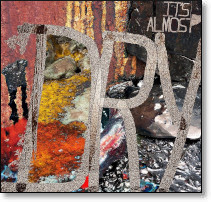 |
 |
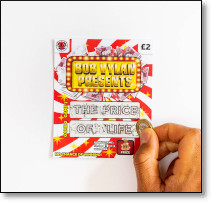 |
Expanded blog post, April archive (finished).
Tweet: Music Week: 38 albums, 3 A-list, last week of the month.
Music: Current count 37777 [37739] rated (+38), 127 [128] unrated (-1).
Rated count down this week, although pretty solid by historical standards. Had a lot of trouble all week long deciding what to play next. Left a fair amount of dead air (like the moment of typing this line). A-list is even shorter this time: three, including an EP built around a 2020 single, "We Live Here" (see video). Having spent the week writing about Ukraine here and here and here, I admit that Bob Vylan's anger was cathartic. [Note: I've edited and added some material to those posts.]
Still, this wraps up a 4-week month where I found 16 A-list albums among 125 new releases, plus a fair amount of old music, where most of the major finds came from the Ogun Records Bandcamp. Ogun was founded by South African expat bassist Harry Miller and his wife Hazel Miller, who revived the label in 1986 after Harry's death. The label was home to fellow South African expats like Chris McGregor and Louis Moholo, as well as a tight circle of English avant-gardists they often played with (e.g., Keith Tippett, Mike Osborne, Elton Dean, Lol Coxhill).
Seems like I should have some more music items to mention. I don't like noting recent deaths, but Art Rupe (at 104) is important enough to make an exception. It finally occurred to me that filling up five hours streaming The Specialty Story would be a suitable wake, and more fun then I normally have. Also lets me put off trying to figure out the Lewis-Stampfel Both Ways album, which a curious reader sent me a zip of. (It was the only album on Robert Christgau's 2021 list I couldn't find to listen to.)
Speaking of Christgau, I've run across a number of links relating to his 80th birthday, but didn't manage to keep track of them. (One I still have in a tab is a reminiscence by Wayne Robbins.) We missed the first half of the Zoom session RJ Smith and Tricia Romano set up. I didn't come up with anything to contribute, but thinking of Robins, one story comes to mind. I had been writing for Bob for a year-plus, and talked to him for edits, but hadn't met actually met him. At the time, I was angling to get into Creem, and had a letter back from Lester Bangs was kind of iffy. I drove to Ann Arbor to see some friends, and on a lark decided to drop into the Creem office uninvited. I did, and couldn't get anyone to talk to me (not that I tried awful hard). When I mentioned this to Bob, he confidently told me that Wayne Robins (who was editor at the time) and Georgia Christgau (Bob's sister, who wrote Creem's film reviews) would like to meet me. A couple days later, they came to me in Ann Arbor. I still didn't get anything published there.
New records reviewed this week:
- Dan Bruce's :Beta Collective: Time to Mind the Mystics (2022, Shifting Paradigm): [cd]: B+(**) [04-29]
- Charming Hostess: The Ginzburg Geography (2021 [2022], Tzadik): [cd]: B+(**) [05-20]
- Charley Crockett: Lil G.L. Presents: Jukebox Charley (2022, Son of Davy): [r]: B+(**)
- Alabaster DePlume: Gold: Go Forward in the Courage of Your Love (2022, International Anthem): [r]: B+(**)
- Dopplereffekt: Neurotelepathy (2022, Leisure System): [bc]: B+(***)
- Fly Anakin: Frank (2022, Lex): [r]: B+(**)
- Chad Fowler/Matthew Shipp: Old Stories (2019 [2022], Mahakala Music, 2CD): [r]: B+(***)
- Chad Fowler/Christopher Parker: Park Hill Saudade (2021 [2022], Mahakala Music): [r]: B+(**)
- Arun Ghosh: Seclused in Light (2022, Camoci, 2CD): [r]: B+(*)
- Marquis Hill: New Gospel Revisited (2022, Edition): [r]: B+(**)
- Lisa Hilton: Life Is Beautiful (2022, Ruby Slippers): [r]: B+(*)
- Mike Holober & Balancing Act: Don't Let Go (2022, Sunnyside): [r]: B+(**)
- Toshinori Kondo x DJ Motive: Zen (2018 [2022], Mohawks): [bc]: B+(*)
- Pusha T: It's Almost Dry (2022, G.O.O.D. Music/Def Jam): [r]: A-
- Diego Rivera: Mestizo (2021 [2022], Posi-Tone): [r]: B+(**)
- Seabrook Trio: In the Swarm (2021 [2022], Astral Spirits): [dl]: B+(***) [05-20]
- Ches Smith: Interpret It Well (2020 [2022], Pyroclastic): [cd]: B+(**) [05-06]
- Spiritualized: Everything Was Beautiful (2022, Double Six/Fat Possum): [r]: B+(*)
- Vince Staples: Ramona Park Broke My Heart (2022, Blacksmith/Motown): [r]: B+(**)
- Swedish House Mafia: Paradise Again (2022, Republic): [r]: B+(**)
- Bob Vylan: We Live Here (Deluxe) (2019 [2021], Venn, EP): [sp]: A-
- Bob Vylan: Bob Vylan Presents the Price of Life (2022, Ghost Theatre): [sp]: A-
- The Weather Station: How Is It That I Should Look at the Stars (2022, Fat Possum): [r]: B+(*)
- Billy Woods: Aethiopes (2022, Backwoodz Studioz): [r]: B+(***)
Recent reissues, compilations, and vault discoveries:
- Pepper Adams With the Tommy Banks Trio: Live at Room at the Top (1972 [2022], Reel to Real, 2CD): [cd]: B+(***)
- Tony Oxley: Unreleased 1974-2016 (1974-2016 [2022], Discus Music): [bc]: B+(*)
Old music:
- Ricky Ford: Manhattan Plaza (1979, Muse): [yt]: B+(*)
- Freddie Hubbard: Keep Your Soul Together (1973, CTI): [yt]: B+(**)
- Imagination: Body Talk (1981, MCA): [sp]: B+(**)
- Imagination: In the Heat of the Night (1982, MCA): [sp]: B+(***)
- Cecil McBee: Mutima (1974, Strata East): [yt]: B
- Cecil McBee: Alternate Spaces (1979, India Navigation): [yt]: B+(**)
- Cecil McBee Sextet: Musi From the Source (1977 [1979], Inner City): [yt]: B+(***)
- Cecil McBee Sextet: Compassion (1977 [1979], Inner City): [yt]: B+(***)
- Cecil McBee: Flying Out (1982, India Navigation): [yt]: B+(**)
- Nina Simone: Remixed & Reimagined (2006, RCA/Legacy): [r]: B
Unpacking: Found in the mail last week:
- Erik Friedlander: A Queen's Butterfly (Skipstone) [04-29]
- Keith Hall: Made in Kalamazoo: Trios and Duos (Zoom Out) [06-24]
- Mike Holober & Balancing Act: Don't Let Go (Sunnyside, 2CD) [04-15]
- Todd Marcus Jazz Orchestra: In the Valley (Stricker Street) [07-01]
- Billy Mohler: Anatomy (Contagious Music) [06-10]
- Sonic Liberation Front and the Sonic Liberation Singers: Justice: The Vocal Works of Oliver Lake (High Two) [06-10]
Sunday, April 24, 2022
Speaking of Which
Tweet: Speaking of Which:
Having eschewed links for my 23 Theses on Ukraine piece Tuesday, I figured I should acknowledge a few other pieces sooner rather than later. I also received several questions on the article, so published my answers here.
Of course, we start off with Ukraine:
Andrew Bacevich: [04-16] Robert Kagan: American passivity led to the Russia-Ukraine crisis: "Always nimble, the pro-war raconteur is again making arguments for preventative war, just more obliquely." I wrote more about Kagan (and his wife, Victoria Nuland, a major player in the American weaponization of Ukraine) in the Q&A (link above). What Bacevich calls Kagan's "flexibility" is something far more sinister. Kagan is arguing that Putin wouldn't have attacked Ukraine if only the US had intimidated Russia sufficiently beforehand. How we could have done that short of nuclear war isn't explained, nor is why any lesser intimidation would have worked. Kagan is so wedded to the use of force, the only world he can imagine is one of masters and slaves.
Hannah Beech/Abdi Latif Dahir/Oscar Lopez: [04-24] With Us or With Them? In a New Cold War, How About Neither. It turns out that a lot of countries, especially in "the global south," want nothing to do with a pissing match between the US and Russia. I doubt this means specific approval of Russia's attack, but they recognize that the US has committed similar crimes, and that they can do little if anything about either. One thing I do give Biden some credit for is that he hasn't pulled out the either-you're-with-us-or-against-us ultimatum (which GW Bush asserted in the War on Terror). I suspect he hasn't done it because his people know it wouldn't work and could backfire.
Paul Elie: [04-21] The Long Holy War Behind Putin's Political War in Ukraine: I can't claim to understand this, but evidently since the Russian Orthodox Church was rehabilitated with the end of communism in 1991 the Russians have been plotting to control Ukraine, which gives them some kind of common cause with Putin. In 2018, a Ukrainian Orthodox Church broke off, as an alternative to Russian control.
Nicholas Grossman: [04-24]: Arming Ukraine Is the Path to Peace: Article blocked, so I'm just going from the excerpt, which mostly is an attack on Noam Chomsky, and a seriously stupid one at that. I can see an argument for arming Ukraine because you want to cripple the Russian invasion, to turn it back or simply to make it so painful Russia thinks twice before trying anything like that again, but that's no path to peace. The only way you get to peace is through negotiation, and the only viable basis for negotiation is justice, which is not determined by the relative balance of arms and terror.
Luke Harding: [04-16] How Zelenskiy's team of TV writers helps his victory message hit home.
William D Hartung/Julia Gledhill: [04-17] The New Gold Rush: How Pentagon Contractors Are Cashing in on the Ukraine Crisis. "Even before hostilities broke out, the CEOs of major weapons firms were talking about how tensions in Europe could pad their profits."
Mike Lofgren: [04-11] No, Russia's Ukraine Invasion Isn't "Our Fault": Identifying with America there, but I can accept the title. He does push his luck with the subhed: "Russia's aggression stems from its history and political culture, not NATO expansion or the post-Cold War settlement." The worthwhile part of the article is the one that explores Russia's history and political culture:
Since Peter the Great, Russia has presented itself as a great power and as sophisticated as western Europe. . . . This facade has never quite concealed deep-seated cultural insecurity, the feeling that poor Russia will forever remain backward and disrespected. This dichotomy animated debate among the 19th-century intelligentsia, dividing between Westernizers embracing Europe and Slavophiles who rationalized Russia's intractable differences with the West as the mark of spiritual superiority.
This schism carried into the Soviet era in the guise of a debate between the merits of world revolution versus socialism in one country, a difference of opinion brought violently to a halt by Stalin's xenophobia and denunciation of "rootless cosmopolitanism" (a largely anti-Semitic euphemism).
Today, Putin still benefits from the cultural backlash against the extreme economic insecurity of the post-Soviet 1990s. His rehabilitation of Stalin is complete, and those who document Stalin's crimes are persecuted. An inward-looking, defensive Slavophilia flourishes under the rubric of Eurasianism, a hodgepodge of geopolitical ramblings whose chief proponent is Putin's Rasputin-like court philosopher, Alexander Dugin.
This isn't quite right. "Socialism in one country" wasn't a theory that won out so much as a tactical retrenchment after revolutions in more advanced capitalist countries failed, leaving Russia isolated in a hostile world. One unfortunate side-effect was that Communist Parties in the West were reduced to acting as Soviet agents, which undermined any possibility of local success. Also, I'm not aware of any "complete rehabilitation" of Stalin, not that there is no nostalgia for the Soviet Union -- where, unlike modern Russia, the state was (in principle, if not always in fact) for the betterment of the masses -- and Stalin has some credibility for winning WWII. Dugin, by the way, is featured in Masha Gessen's The Future Is History: How Totalitarianism Reclaimed Russia. As I tried to explain in my "23 Theses" piece, I think psychology has a lot to do with why Putin invaded. Someone else, for instance, with no designs beyond his borders, could have decided that NATO was a purely defensive alignment, and simply ignored expansion. But Putin was too prideful and/or paranoid to ignore NATO expansion and other measures that impacted Russia (like sanctions, and support for Ukraine vs. Russian separatist regions). No doubt the war wouldn't have happened had Putin approached his disputes with the West more constructively. On the other hand, shouldn't the US and its allies deserve some kind of reproach for not anticipating how serious the conflict might get? And for not attempting to defuse the conflict? Once Putin started amassing troops near the Ukraine border, Biden went all stick, no carrot, and since the war started, Biden has escalated repeatedly, while ignoring the obvious need for talks around a cease fire.
The early part of Lofgren's article is mostly a counter to John Mearsheimer (presumably his Economist piece John Mearsheimer on why the West is principally responsible for the Ukrainian crisis, tucked safely behind a paywall). Mearsheimer stipulates up front: "There is no question that Vladimir Putin started the war and is responsible for how it is being waged." But then he goes into why Putin did so. I haven't read what he says, but have my own theories. I will say that although Mearsheimer is often sharp on critiquing American policy, his "realist" prescriptions don't offer much improvement. The goal of US foreign policy shouldn't be a narrow focus on national interests, but a broad effort to build cooperation between nations, because there's no safe way to enforce the New World Orders stategists are so enamored with.
PS: Another headline I noticed from Economist: [04-23] Poland's prime minister says the West's appeasement of Vladimir Putin must stop. First paragraph leads off with Neville Chamberlain at Munich in 1938, adding "the analogies with the present situation are striking." One might argue that Putin needs NATO to keep hawks like Mateusz Morawiecki reigned in, although it's also possible that the security offered by NATO is what allows the hawks to shoot off their mouths.
Josh Marshall: [04-21] Failing at the Basics: Cites a poll that says 54% of Americans think Biden hasn't been tough enough on Russia over Ukraine. I'd draw three inferences from this number: they don't understand what Biden has done, which has been pretty aggressive within some finely calculated restraints; they don't understand how dangerous going beyond those constraints could be; and they're hung up on a totally bullshit idea of toughness. Marshall sees this (like dozens of other things) as a failure of messaging, but the message he wants Democrats to pound home is how friendly Trump and many other Republicans have been to Putin over recent years (e.g., "why just three years ago they were helping Presidents Trump and Putin conspire against Ukraine and the United States").
Kevin Martin: [04-22] With Humanity on the Brink, Should We Trust Deterrence Theory, or Disarmament? Above all else, the lesson we need to draw from Ukraine is that the shibboleths of post-WWII defense theory simply don't work. You know the clichés: peace is guaranteed by strength, we cannot negotiate with enemies so the only way we can stop them is through deterrence. I suspect the list of things that Ukraine has proven wrong is quite long -- not least, almost everything we thought about sanctions. A rethink is in order, which would lead us back to the common sense notion that the way to prevent future wars is to forego the arms races that lead to them, and understand the value of mutual respect.
Alfred McCoy: [04-19] How to End the War in Ukraine: "A Solution Beyond Sanctions." McCoy's scheme is to use the European Court to order Russia to pay reparations for damage to Ukraine, and to collect those reparations by garnishing oil and gas revenues. It's hard to see how this would work, but the 20% rate he proposes would presumably leave Russia enough profit to not just shut delivery down. Still, it feels like a tariff, which is effectively a tax on European consumers. Hard to see where anyone comes out of that deal feeling whole.
Bill Scher: [04-12] Don't Let Putin's War Break the UN: Starts with Zelensky questioning why Russia hasn't been stripped of its permanent Security Council seat (with its veto power). Doesn't mention that Russia has already been suspended from the UN Human Rights Council (by the UN General Assembly, which isn't subject to vetoes, but carries much less weight than the Security Council). Explains the history of how that arrangement came about. The more basic point is that without Russia (or for that matter China and the US) there is no United Nations. The UN would cease to be a forum for resolving international conflicts (inefficient as it is), and instead be one for advancing them.
Jeffrey St Clair: [04-22] Roaming Charges: Runaway Sons of the Nuclear A-Bomb: Bullet points, but more intuitive insight than most: "Winning wars is no longer the point, prolonging them is -- that's where the money's made and what the fog of war is meant to obscure." Way down he quotes Walter Benjamin: "Fascism sees its salvation in giving these masses not their right [to material improvement], but instead a chance to express themselves." Sounds like a lot of Republicans these days, with the proviso that now (as then) only some people are entitled to express themselves, and only in certain ways. Evidently, St Clair also wrote [04-10] The Politics of Lesser-Imperialism [behind some kind of paywall], which takes to task the segment of the "anti-imperialist left" that is rallying behind Russian war propaganda because they think it counters the "greater imperialism" of the US.
It's a weird kind of anti-imperialism that writes amicus briefs for a regime that Lenin and Trotsky would have been toiling night and day to overthrow. Of course, the briefs themselves never dig too deep before hitting the bedrock of their own absurdity. Instead, they function as a kind of meme factory, endlessly the shallow tropes of the day, such as "false flags over Ukraine." In a month, the Ukraine war has yielded up so many allegations of "false flags" that the assertions themselves begin to seem like false flags: the bodies on the streets of Bucha were staged; the bombed Mariupol theater was being used by the Azov battalion; the Kramatorsk train station was hit by Ukrainian rockets. And on and on . . .
The US bears responsibility for all of the carnage now unfolding. All right. Likely true. To a degree. Now what? Overthrow the US? Godspeed. . . . The Left -- especially the international Left -- used to see capitalism as the unifying threat, the systemic enemy. But you rarely hear it talked about these days, even though its fangs are sharper than ever. Perhaps that's because the old socialist powers have cashed it in and joined the mad scramble to commodify all that remains. Communist China now boasts 1002 billionaires, 400 more than the cutthroat capitalists in the US. To paraphrase Mao: who's running with the imperialist dogs now?
Yes, we know NATO is bad news. I've been writing about NATO's belligerent and criminal actions for nearly 40 years now, including weekly dispatches on its wars in Serbia, Afghanistan, Iraq and Libya. I've written about NATO's provocative creep ever-eastward. Its remorseless campaign to bully, bleed and isolate Russia at any cost. And yet. While the war in Ukraine had many co-authors, it only had one agent.
Putin may have been tempted, lured, baited or even duped into invading Ukraine. He may have been lied to by his own generals and spymasters. He may not be the grand strategists so many thought. But he alone pulled the trigger. His tanks crossed the border. His bombs destroyed city blocks, hospitals, train depots. His army is occupying foreign ground. . . .
But here's what's worse. In rationalizing Putin's crimes in Syria and Ukraine, the anti-imperialist left in effect validates America's own in Afghanistan, Iraq and Libya.
Matt Taibbi: [04-19] America's Intellectual No-Fly Zone: This starts off citing an interview, Noam Chomsky on How to Prevent World War III. Chomsky points out that the US has two options: either negotiate a settlement with Putin, which would mean unpleasant concessions to give Putin a self-respecting way out, or keep fighting until Putin submits (while hoping, presumably, he won't respond to existential threats with nuclear weapons). Biden's lack of interest in negotiation, as well as his charges of war crimes and his escalations at every turn, suggest the US has settled on the second approach, regardless of risk. It certainly is the one that plays best in the madhouse of US foreign policy rhetoric (which is full of praise for the braveness of Ukrainians, with much less concern for their lives). Taibbi enters to monitor the reaction to Chomsky, which is to judge him "a genocide-enabling, America-hating Kremlin stooge." [Would like to read more, but Substack subscription required.]
Anton Troianovski: [04-17] Atrocities in Ukraine War Have Deep Roots in Russian Military. Of course, it's not just Russians with deep roots.
Robert Wright: [04-11] The Blob has won the Ukraine framing war: I don't particularly like the term "Blob." It was coined by Obama adviser Ben Rhodes to deride other security/foreign policy mandarins he disagreed with, but it's not like he or Obama made much of a break with the main stream of thought that came out of American preëminence after WWII, navigated the Cold War, and took a turn toward increased militarism after the demise of the Soviet Union. Conservatives and liberals both took that turn, their different rationales converging on the steadfast belief that American might makes/reflects right, with so little concern for the possibility that something might go wrong that their skeptics could call themselves "realists." Not that there was never disagreement on tactics, but at critical junctures, like the invasion of Iraq, the Blob could be distinguished from everyone else. When Biden pulled out as Afghanistan fell to the Taliban, we saw the Blob attempt to rise up to smite him, but all they had to work with was hindsight -- it's not like anyone could imagine invading again would work better this time. Besides, having gotten in a few blows, there would be more crises in the future, and now Ukraine has come along, fitting neatly into a story line they've been spinning ever since they got bored with the Middle East and started looking for more lucrative prey. Wright focuses on one particular framing of Ukraine: "this idea that America is fighting a global war on behalf of democracy and freedom." He points out "six big problems":
- It's a lie. The US has a long history of subverting democracy abroad, as well as arming autocrats to attack their own people (and in some cases, like Saudi Arabia now, or Iraq in the 1980s, to attack others).
- It warps our view of the world, sometimes blinding us to the very problems we claim to want to solve. Ukraine is not exactly the poster-child for democracy.
- It short circuits critical self-examination. "The more you make authoritarianism the crime, and the less you make invasion the crime," the more excuse you claim for America's own invasions.
- It undermines respect for international law. Which the Blob has long denigrated, partly out of fear of prosecution, but mostly because they can't stand the idea that their own operations could be limited by mere rules.
- It is a self-fulfilling prophecy. If we're defending democracy in Ukraine, why not elsewhere? Sure, you can point to other cases where the Blob has stylized conflicts as being democracy vs. autocracy (Venezuela, Nicaragua, Iran, Russia, to pick four cases where there are elections that are little if any more compromised as elections are in the US).
- It could doom the world to a future of chaos and suffering. "Regular readers of this newsletter know what's coming." Regular readers of my blog, too, so we'll let this one go at that.
One point that I will add is that Biden may be more inclined than the average Blobster to focus on democracy vs. autocracy, because that is a struggle that is being waged domestically as Republicans (the would-be autocrats) try to undermine and rig elections, much as they have managed to rig the economy in favor of owners against workers, of companies against customers, and corporations against mere citizens. Of course, stopping Russia in Ukraine won't help most Americans at all. As a letter put it: "Democrats are anxious to seize on an issue where they are not playing defense, as they are on inflation, gas prices, identity politics in elementary school, and crime."
Wright also wrote: [04-20] The Ukraine War Speech Code. The "code" is a prohibition against considering the possibility that NATO expansion had something to do with Putin's decision to invade Ukraine. As Wright puts it: "The party line being that if your assessment of the causes of this war is much more nuanced than 'Putin is a bad man,' you're dangerously misguided." Wright argues that if you want to blame Putin solely for invading Ukraine, you should phrase it in terms of international law, where no US provocation excuses what he did. (Nor does the incontrovertible fact that the US violated the same international law in invading Iraq in 2003. But haven't we reach the point where very few of us still think that was a good idea? Maybe more respect for international law would save us future embarrassments like that.) On the other hand, we should still talk about how the US prodded and provoked Putin to the point where he made his criminal decision, and how we didn't make a serious effort to defuse the situation through diplomacy before the war was launched, because that reflects back on US decision making: specifically, on why the Blob's core beliefs keep getting us into conflicts we can't figure our way out of.
The latest installment of Wright's Nonzero Newsletter [04-22] Earthling also makes some interesting points. There's a chart based on January polling of how people in Donbas might vote between various stay-in-Ukraine vs. align-with-Russia options, which indicates that a slight majority would vote to stay, but most of those were in formerly Kyiv-controlled areas. In Russian-controlled areas, a vote would tip the other way (and the present offensive is designed to increase Russian-controlled area, while driving others away). There's also a chart on who is to blame for the war. In the US about 60% blame Russia, and 20% blame the US. That's closer than I would have expected, especially given how one-sided the news coverage is. But my guess is that at least half of those are Trumpists. The only nation polled where more people blame the US than Russia is China.
For what it's worth, while looking for some insight into the Blob concept, I ran across these historical links:
- David Samuels: [2016-05-05] The Aspiring Novelist Who Became Obama's Foreign-Policy Guru: A profile of Ben Rhodes, at the time Obama's "deputy national security adviser for strategic communications." He is credited with coining the term Blob for figures in the "American foreign policy establishment," including: "Hillary Clinton, Robert Gates, and other Iraq-war promoters from both parties who now whine incessantly about the collapse of the American security order in Europe and the Middle East."
- Alex Ward: [2010-12-08] The revenge of the blob: "Presidents Obama and Trump kept the nation's foreign policy establishment at arm's length. President-elect Biden has warmly embraced it."
- Sarah Lyall: [2021-09-16] For Some, Afghanistan Outcome Affirms a Warning: Beware the Blob: "The chaotic withdrawal from Afghanistan exposed the shortcomings of views within the foreign policy establishment, also known as 'The Blob.'"
- Robert Wright: [2021-10-11] Toward a Unified Theory of Blob-dom: This is where Wright lays out his Blob definitions.
Cathy Young: [04-13] What Really Happened in Ukraine in 2014 -- and Since Then: "A close look at the lies and distortions from Russia apologists and propagandists about the roots of the Ukraine War." Fairly deep review from 2014 forward, although the subhed pretty much admits that the "no tribal prejudices" motto isn't quite right.
And here are some other timely stories:
Karen Attiah: [04-20] Why Britain's deal with Rwanda on migrants is so repulsive: Boris Johnson's solution to immigrants seeking asylum is to round them up and dump them in an already-overpopulated, land-locked country in central Africa, one with a "well-documented history of human rights abuses." Still, I wonder how many white Ukrainians he'll deport there. Attiah also wrote [03-24] William and Kate's colonial Caribbean tour was cringeworthy.
Bloomberg: [04-21] Eight-hour blackouts hit India after hottest March since 1901: Article blames a shortage of coal, but isn't the real problem too much coal?
Paul Blumenthal: [04-15] What Jared Kushner's $2 Billion Saudi Payout Says About the Post-Presidential Hustle. In the long history of presidential graft, there's never been anything remotely like this.
Kyle Chayka: [04-21] Why Would Elon Musk Want to Buy Twitter? How about: "as a means for himself and others to continue influencing vast audiences without interference"? Related: Kevin T Dugan: [04-21] Elon Musk Enters His Rupert Murdoch Phase.
Leilah Danielson: [04-17] AJ Muste Was a Prophet of the 20th-Century US Left: I've often reminded that our late friend Diane Wahto used to sign her email with a quote from Muste: "There is no way to peace. Peace is the way."
Jason Ditz: [04-22] Turkey Seeks to Bar PKK From North Iraq Border: While you've been so bothered with Russia trying to intimidate Ukraine to stop them from disrespecting Russia (or whatever it is Putin thinks his principled stand is), Turkey has been doing the same thing in Iraq: crossing the border to attack Iraqi Kurds he regards as some kind of threat. You're not so bothered there, probably because it's been so lightly reported, but it's the same principle: big country using force to intimidate small neighboring country. It should be every bit as illegal, but when you're a big country, you figure you're above all that.
Molly Fischer: [03-28] Galay Brain: On Adam Tooze.
Shane Goldmacher: [04-17] Mar-a-Lago Machine: Trump as a Modern-Day Party Boss: "Hoarding cash, doling out favors and seeking to crush rivals, the former president is dominating the GOP, preparing for another race and helping loyalists oust officials who thwarted his attempted subversion of the 2020 election."
Sean Illing: [04-24] Michael Lewis on why Americans don't trust experts: "How a society that is so good at creating knowledge can be so bad at applying it." If you've read Lewis's book The Fifth Risk, you'll have a pretty good idea what he's on about, but you'll still want to read this for more examples. But if you're one of those Republicans who believes Reagan's joke about government is gospel truth, you won't have any fucking idea.
Michael Kruse: [04-16] The One Way History Shows Trump's Personality Cult Will End: "An expert on autocracy assesses how far America as slipped away from democracy." Interview with Ruth Ben-Ghiat.
Jane Mayer: [04-16] The Slime Machine Targeting Dozens of Biden Nominees: Spelunking another dark money right-wing organization, which goes by the initials AAF.
Bill McKibben: [04-22] This Earth Day, We Could Be Helping the Environment -- and Ukraine: A hedgehog, his one big idea about climate change lets him turn every topic back into his topic. So, he figures, Russia's war on Ukraine is financed by oil. Stop using oil (especially Russian oil, but why stop there?) and the war it funds will no longer be possible. If only we had thought of this before getting into such a mess.
Dana Milbank: [04-19] DeSantis saves Florida kids from being indoctrinated with math: In a supposedly transparent but otherwise mysterious process, Florida has rejected 54 math textbooks, most for allegedly including "critical race theory" or other "prohibited topics."
Ian Millihser: [04-19] The Trump judge's opinion striking down the airplane mask mandate is a legal disaster. We're fortunate so far that the Supreme Court conservative majority (except for Alito and often Thomas) still make an effort to cast their political decisions in terms that recognize legal understanding, but this is a prime example of a lower Trump judge just inventing stuff for political reasons. Millhiser also wrote [04-23] Ron DeSantis's attack on Disney obviously violates the First Amendment.
Rick Noack/Michael Birnbaum/Elie Petit: [04-24] France's Macron wins presidency, holding off Le Pen's far-right threat to upend Europe and relations with Russia. Breaking news as I'm trying to wrap this post up. Split is 59-41 percent, which is less than 5 years ago.
Charles P Pierce: [04-18] The Republican Undead Walk Among Us. Just Look at Scott Pruitt: "The ethically challenged former EPA administrator wants to join the Senate." Replacing Jim Inhofe. Who says you can't do worse? Pierce writes a lot of short pieces worth reading. Another that stands out [04-22] Marjorie Taylor Greene Was the Most Non-Credible Person I've Seen on a Witness Stand in Decades. Also [04-20] Mallory McMorrow Had Two Options After She Was Called a 'Groomer.' She Chose to Swing Back. Seth Myers could features her speech in his segment, "The Kind of Story We Need Right Now."
Nathaniel Rakich: [04-21] The Extreme Bias of Florida's New Congressional Map. The map in question produces 18 seats that are R+5 or more, vs. 8 seats that are D+5, and 2 competitive seats between.
Matt Shuham: [04-22] Bannon's GoFundMe Border Wall Buddies Plead Guilty While He Lives Free With Trump Pardon.
Richard Silverstein: [04-18] Ramadan and the Road to War . . . and Perdition, and [04-19] Biden Sends US Diplomats to Israel on Fool's Errand: Looks like Israel is gearing up for one of their periodic "mowing the grass" onslaughts in Gaza. The parallels to Ukraine are strong. Putin only wishes he could bottle up Ukraine like Israel has done to Gaza. But perhaps Israel wouldn't be so callous and overbearing if the US and its allies applied sanctions against Israeli aggression like they're doing to Russia. I'm less certain that sending defensive weapons to Gaza, like NATO is doing for Ukraine, would help, but that's mostly because Israel is a nuclear power (like Russia).
Adam Weinstein: [04-18] Deadly Pakistan strikes in Afghanistan reflect growing cross-border tensions: Like Turkey/Iraq, another case of cross-border aggression, supposedly rationalized by Afghanistan providing a sanctuary for TPP fighters against Pakistan.
Daily Log
Fragment on Blob cut from above:
On the downside, it blurs the (rather narrow) range of differences among the "American foreign policy establishment" (a more generous term which still conveys some sort of self-selected clique able to exert a consistent direction in administrations of both political parties). I tend towards a finer-grained taxonomy, chiefly: neocons (idealists in love with military power and little if any concern for how that impacts others), neoliberals (same, except they do claim to care, hence they're also known as "humanitarian interventionists"), and realists (non-idealists, who try to tie policies to material interests, not caring how they impact others except as that affects the possible success of the policies). This implies a 2x2 matrix, one dimension for ideologist vs. pragmatist, the other self-centered vs. respectful of others, but the Blob excludes the fourth corner (pragmatic but respectful of others). A proper taxonomy would find more variants: e.g., is Henry Kissinger a "realist," as neocons often charge, or something different, some kind of monarchist throwback, but for all practical purposes, he always winds up well within the Blob; or Ben Rhodes, who coined the term Blob to denigrate other people, but who winds up Blob-adjacent more often than not; or Peter Navarro, who we can use as a proxy for a Trumpist "America First" mindset that for Trump himself never developed beyond the stage of "irritable mental gestures." Still, the Blob coalesces at critical intervals, especially in the decision to invade Iraq.
Tuesday, April 19, 2022
Speaking of which: 23 Theses on Ukraine
Tweet: Speaking of Which: 23 Theses on Ukraine: Trying to get to the bottom of the War in Ukraine: why would Putin do such a cruel and senseless thing, why Americans seem more determined to make it worse rather than bringing it to an end, and what we should we be doing looking forward.
I started working on this last week, hoping to sum up much of what we know about the Russia-Ukraine War: the context, including a look back at history; what the conflict tells us about military thinking and international institutions; and how I imagine the crisis can be resolved, and further crises averted. I originally thought of doing a set of numbered theses, but the paragraphs are probably too long to be so considered. Still, they feel rather schematic to me, as I touch on a lot of points.
Three great betrayals contributed to Vladimir Putin's decision to invade Ukraine on February 24. The bad faith from breaking these promises snowballed into future recriminations and fears. These were:
- The US promise not to expand NATO beyond Germany when East and West merged in 1989. Bill Clinton broke this when he accepted NATO membership for Poland and other former Soviet satellites in 1997.
- Russia's promise to respect Ukraine's borders and security in 1993, when Ukraine transferred its portion of the Soviet nuclear weapons to Russia. Putin broke this in 2014 when Russia seized and annexed Crimea, and armed a separatist militia in Donbas.
- The Minsk Protocol was signed in September 2014 to settle the Donbas dispute, but soon failed, as did the subsequent Minsk II agreement. Ukrainian president Volodymyr Zelensky, elected in 2017, renounced the treaty in 2021.
Perhaps the most important betrayal of all was the informal agreement no one dared write down. On December 8, the leaders of Russia, Ukraine, and Belarus met secretly and agreed to dissolve the Soviet Union, leaving all 15 SSRs as independent states. This was a second coup attempt, after the reactionary "old guard" coup by elements in the military and party failed to depose Gorbachev in August 1991. By that point, the central government was weakened, and independence movements were rapidly advancing in many SSRs, including Ukraine. The coup dissolved the Soviet Union, with a "Commonwealth of Independent States" serving as a clearing house until the military and other shared resources could be divided. The unwritten part was the Yeltsin's assumption that once the dust cleared, nothing much would change: Russia would continue to dominate the periphery, as it had in the Soviet Union and before that in the old Empire. For a while, it seemed to work that way, but then Ukraine started to stray. The definitive break came in 2014, when the Ukrainian parliament impeached "pro-Russian" president Yanukovych, in an effort to realign Ukraine with the more prosperous EU. That's when Putin panicked and went to war.
The Russian Empire grew out of the Duchy of Moscow, founded in 1263 as a vassal state of the Golden Horde. It was initially ruled by the Rurik Dynasty, who before the Mongols interrupted had held power in Kyiv, in a state the Russians later called Kievan Rus (879-1240). Given this history, it's little surprise that Russians have come to think of Kyiv as theirs. The Duchy of Moscow broke free of the Mongols and expanded, in 1480 recasting themselves as the Russian Empire. But Moscow didn't conquer Kyiv until 1667, and it was not until the late 18th century when Russia extended control over most of modern Ukraine, and started a campaign to move Russians into Ukraine (which, to use a term Putin recently reiterated, they called Novorussiya; those Russians mostly moved to the south, which had been ruled by Turks -- the Crimean Khanate fell in 1783 -- and the southeast, a major coal area). Western Ukraine, including Lviv, was ruled by Austria-Hungary up to 1918, then by Poland until borders were redrawn after WWII. Ukraine was briefly independent 1917-20, with revolutions and civil war alongside Russia, before joining the Soviet Union in 1922.
Russian political culture shares a trait with most other declining empires: an exaggerated sense of their own wisdom and benevolence, which convinces them they are entitled to intervene in the affairs of their former subjects. We see this in France's recent interventions into former colonies like Mali, and in the UK returning (under US direction) to Afghanistan and Iraq. We even see this conceit in such long-gone empires as Turkey and Iran. We see a variant of this in the US, which given the global dominance the US has sought since WWII can be applied to countries with only tenuous or imagined relationships. In Russia, this is especially strong, perhaps because the former empire was compact and contiguous -- although Russians have also claimed a pan-slavic identity (such as their bond with Serbia). Their sense of bonds is further shored up by the Russian diaspora: as the Empire expanded (and as the Soviet Union recapitulated the Russian Empire), ethnic Russians colonized their subject territories, sometimes achieving majority status (as in Crimea and Donbas). They became a special focus for Russia's post-imperial chauvinism, in a way that has few parallels elsewhere (although Reagan sending the Marines to Grenada to "protect American medical students" was a supremely Putinesque move).
Americans tend to date the Russia-Ukraine War from February 24, when Putin commenced his "special operations," sending troops into Ukraine from both north (some via Belarus) and south (through Crimea). The invasion had been predicted by US "intelligence" leaks, accompanied by threats of escalated sanctions should Russia follow through on their threats. Ukrainians, on the other hand, date the war from February 2014, when Russia took advantage of widespread protests against the impeachment of Yanukovych to execute a coup in Crimea and an uprising in Donbas. Those regions had Russian majorities, and had reliably voted for "pro-Russian" candidates since 1991. The Crimean operation was over in an instant, and ratified in a referendum on March 16. The Soviet Union had its main naval base in Sevastopol (it retained base rights there until 2017, per an agreement following the independence), and quickly moved operatives in to orchestrate the transfer. Protests in other heavily Russian cities, like Odessa, fizzled out, but the Donbas area broke out into an armed revolt, which Russia backed (and to some extent led). The Donetsk and Luhansk oblasts declared their independence from Ukraine, and Ukraine's military moved to suppress the revolts, clawing back a little more than half of their territory. A cease fire agreement in 2015 effectively froze the conflict, but eight years some 14,000 people were killed. Both sides dragged their feet on implementing the 2015 Minsk Agreement, which called for Ukraine to repeal laws thought to discriminate against Russians, and offered Donetsk and Luhansk autonomy within Ukraine. Zelensky, who was elected in 2019 on a vague promise to resolve the conflict, felt that Minsk would give Russia greater power to meddle in Ukrainian affairs, making it harder to join EU and/or NATO. Meanwhile, from 2014 on, the US and its allies imposed increasingly strict sanctions on Russia's economy, and on individuals believed to have influence on Putin. The impact of the sanctions is unclear, but they were part of a more general American-led effort to marginalize Russia, which included expanding NATO and its armory.
After the Soviet Union dissolved in 1991, a number of conflicts arose over borders between the newly independent SSRs that hadn't been problems under strong central rule. Transnistria broke away from Moldova in 1991. Abkhazia and South Ossetia from Georgia in 1993. Russia supported those independence movements, so its support for Donetsk and Luhansk wasn't unprecedented. On the other hand, when Chechnya tried to break away from the Russian Federation, the Russian Army was sent in to quash the uprising. The Chechen War (1994-96) failed, but when Putin rose to power in 1999, he launched the Second Chechen War, which ended independence, leaving 50-80,000 total dead. There is a theory, popularized by David Satter, that Putin orchestrated apartment bombings in suburban Moscow, killing more than 300, as a pretext for reopening the war against Chechnya. (As crazed conspiracy theories go, this one doesn't seem especially out of character.) Chechnya provided Putin with his first taste of war, and it felt good. The war lifted him from unknown to Russian hero.
The bigger problem with the dissolution of the Soviet Union was the economic catastrophe which followed. In Russia, the economy contracted by 40% between 1991 and 1998, and life expectancy dropped, as mortality for men rose by 60%. Similar problems beset the other former SSRs, although the Baltic states did better, by reorienting their economies to trade with Europe. Going back to Tsarist times, the Russian economy was designed to take advantage of the Empire's periphery. The bigger problem was rampant corruption, which fueled the rise of a class of oligarchs, and led many to classify the governments as kleptocracies. But Russians like Putin were easily alarmed when former SSRs pivoted away from Russia, and especially in 2014 when Ukraine signed a memorandum to join the EU. That was when Putin put pressure on Yanukovych to cancel the move, and mass protests emerged, leading to the impeachment of Yanukovych and the Russian operations in Crimea and Donbas. This wasn't the first time Russia perceived the threat of outside (especially American) political operations within their former sphere: the so-called Colour Revolutions of 2003-05 had overthrown pro-Russian cronies in Ukraine (Orange), Georgia (Rose), and Kyrgyzstan (Tulip, or Rose).
The most consequential of the Color Revolutions was the one in Georgia, as it brought Mikheil Saakashvili to power. He was outspoken in his desire to join NATO and the EU, while also plotting to retake the Russian-backed breakaway republics of Abkhazia and South Ossetia. Putin responded to the threat by sending troops into Georgia, where they quickly won several battles, before withdrawing to new military bases in Abkhazia and South Ossetia. The war started on August 1, 2008, and was over by the 12th. American super-hawks John McCain (at the time the Republican candidate for president) and Lindsay Graham were livid, insisting the US should fight to defend Georgia, but cooler heads prevailed, and Condoleezza Rice oversaw the cease fire agreement. This was Putin's second brush with war, and it, too, felt good. The operations in Ukraine in 2014 would be his third.
Russia's operations in Ukraine in 2014 feel improvised, like Putin was trying various things, with a cautious eye toward figuring out just what he could get away with. The best solution for Russia would have been to undo the impeachment and return Yanukovych or some other pliant crony to power, but even if some in parliament were bribed to impeach, much popular opinion had swayed to the side of the Maidan protesters. And then Crimea fell right into his lap, and that was too rich a prize to let go. Crimea had originally belonged to the RSFSR, and was only turned over to Ukraine in 1954. The population was about 65% Russian (vs. 15% Ukrainian, and 11% Crimean Tatar). Russia had a naval base and troops stationed in Crimea. (Annexing Crimea saved Russia from having to build a new Black Sea naval port by 2017.) The land connection was very narrow, and easily severed. And in the east, the Kerch Peninsula came close enough to the Russian mainland that Russia has since been able to span it with a bridge. (The main drawback was that Crimea depended on a canal from Ukraine for water. After annexation, Ukraine dammed the canal. The first thing Russia did after invading this year was to destroy that dam.) Donbas also proved to be relatively easy to infiltrate and supply. There were repercussions for their operations, chiefly in the form of sanctions, which presumably have been a drag on Russia's economy (and oligarchs), but it's hard to say how much.
NATO was originally founded in 1949, not to fight a war with the Soviet Union but to deter one, while uniting western Europe under consistent American command. Deterrence was straightforward, because Eastern Europe had already been ceded as a Soviet sphere of influence at Yalta. Both the US and Russia were war weary, and the US had (and the USSR would soon have) nuclear weapons. NATO saved most European nations (especially Germany and Italy) from the burden of rebuilding their militaries. France and the UK still had foreign empires to lose, so the US cut them some slack. Russia allowed Austria and Finland to carry on as neutral nations. The US worked to suppress Communist movements in its sphere (most violently in Greece, clandestinely in Italy), but didn't lift a finger when the Russians put down rebellions in Hungary (1956) and Czechoslovakia (1968). The Cold War was an arms race, but the hot spots were in the so-called Third World. When Russia let go of its Warsaw Pact allies, the only cause for concern was East Germany, which wanted to unify with the West. Gorbachev reluctantly agreed that a unified Germany would be safer in NATO than as neutral. For one thing, Germany had all the tech it would need to build a nuclear arsenal, but as long as it was covered by NATO had no reason to do so. This concern to "keep Germany down" was the main reason for maintaining NATO after the Warsaw Pact disbanded. But as the 1990s progressed, NATO started finding more reasons to exist. They contributed to America's 1990-91 Gulf War. They reluctantly intervened in Yugoslavia, which had splintered into warring factions in 1991. In 2001 they voted to support America's war in Afghanistan. France, Germany, and Turkey sat out Bush's Iraq War, but in the search for "a coalition of the willing," the US sought allies from Eastern Europe, leading to a second wave of NATO expansion. (The first, in the late 1990s, was sold as a path for Eastern European countries to join the EU, but it could just as well be seen as an arms cartel scam. It's unclear whether fears of an increasingly nationalist Russia drove or were caused by NATO membership.) During the 1990s, Russia had objected to NATO expansion but hadn't seen it as a big threat. However, around 2010, as Obama was getting out of Iraq and winding down Afghanistan, the US military was looking for new budget opportunities, and remembering the Cold War fondly. They were originally talking about a "pivot to Asia," but after Georgia in 2008 and Ukraine in 2014 it got easier to sell Putin as evil wizard -- and as Putin clamped down on dissent in Russia, to present him as a treacherous foe of democracy. With that, conjuring up ancient fears of Russia, especially in Eastern Europe, which had long felt the stifling force of Russian power, was easy. Why the US should go out of its way to antagonize Russia is hard to fathom. Could it be as simple as that expanding NATO created a new market for politically influential US arms merchants? Conversely, it took market away from Russian arms -- one of the few manufactures Russia could sell competitively. This had the effect of limiting Russian arms sales to countries barred from US arms, like Syria and Venezuela, effectively reproducing the Cold War division without any hint of ideological coherence.
Russians have long been attracted to the idea that a buffer zone of friendly or at least neutral nations around them provides a measure of security against foreign attack. This was tested early in WWII, and turned out to be worthless. The Molotov-Ribbentrop Pact of 1939 allowed Germany to expand east without provoking Stalin, and encouraged Stalin to move west to the new German border, occupying territory that had been stripped from Russia after WWI. The additional territory proved to be useless in defense of the Soviet Union after Hitler broke the Pact and invaded in 1941. The Soviet gains of 1939 were wiped out almost instantly, and the Nazis found collaborators who were more anti-Russian than pro-German. Moreover, Russia attempted to recapture Finland in a fruitless war that only detracted from their defense against Hitler. Nonetheless, Stalin returned to the idea of a buffer zone when laying out the Warsaw Pact sphere of influence in Eastern Europe. Russian dominance of Eastern Europe generated enough resentment the arrangement collapsed as soon as Gorbachev decided to let it go. Putin seems to have nostalgia for past empire, even when he allows that reconstituting it is impossible. This is clearest in his equation of anti-Russian sentiment in Ukraine with Nazis -- hence his vow to "de-Nazify" Ukraine. The history of anti-semitism and Nazi collaboration in Ukraine makes it a bit too easy to charge Ukrainian nationalists with Nazism.
Then, in 2016, Putin did a very dumb thing: he deployed his hackers to try to tilt the US presidential election to Donald Trump. Hillary Clinton was tied to Obama's turn against Russia, and was clearly the more hawkish candidate, more committed to America's domineering role in world affairs. Trump, on the other hand, was the kind of guy Russian oligarchs were used to doing business with. And Trump seemed to admire Putin, while they shared many of the same prejudices and tastes. Unfortunately, Trump won, and Clinton used Putin's role as a scapegoat, encouraging her fans to become rabid Russophobes. Trump was as obsequious as expected, but he did Russia few real favors, mostly because he handed foreign policy over to neocons who grew up in the Cold War and only became more wedded to raw power in later years. Trump added to Russia's sanctions burden. He figured that a big part of his job was to sell arms abroad, and he tried to cajole NATO into buying more, and deploying closer to Russia. He tore up several treaties, the intent being to stimulate a greater arms race. He had little concern for Putin's affronts to democracy, but that didn't stop others from harping on them. His term corresponds to four years of frozen conflict in Ukraine, where he gave neither side reason to hope or to settle. He likes to boast now that Putin wouldn't have invaded if he were still president. He is probably right, but not for the reasons he offers. Trump likes to think of himself as a tough guy no one else would dare to cross. He isn't, but that doesn't matter. There is a limited number of things the US can do in a conflict with a nuclear power like Russia: sanctions are easy, cyber is iffy, arms are business, propaganda is a given. In such a conflict, both sides calculate carefully what they can get away with, and what they dare not try. Trump makes such calculation harder, because he's so unbalanced and unstable, or to put it more succinctly, stupid and crazy. That may have been enough to get Putin to err on the side of caution. But beyond that, Zelensky is also busy calculating what he can and cannot get away with, and he was able to play Biden for more support than had been possible with Trump (who famously withheld aid when Ukraine didn't dish up the dirt Trump wanted on Biden). So do the math: Zelensky is getting stronger, the US under Biden is more committed in supporting Ukraine, and Putin is getting nervous that his big play in Ukraine might collapse. That needn't have pushed Putin over the edge, but it certainly made it more likely that Putin would panic. While I suspect that Biden's warnings and threats were meant to deter Putin, they also felt like taunts. It's not at all clear that the Biden administration (or its more hawkish allies, like the UK) regards the invasion as the tragedy it plainly is. Rather, they'd like to take it as vindicating their long process of painting Putin into a corner.
All states implement a regimen of laws and rights to govern behavior, and enforce it through police and courts. In nations where the system is widely regarded as just, conflicts are rare and usually resolved without resort to violence. This creates a measure of safety and stability which allows commerce and culture to develop and flower. No such system exists to govern the behavior of states, although many have been proposed, treaties have been signed, and some toothless institutions created (like the League of Nations after WWI, and the UN after WWII). Powerful states refuse to submit even to normative rules, and no one (even collectively) can force them. After the UN was created, the US and USSR tried to use it to protect and advance their foreign policies, and failing that gradually withdrew, in favor of pressing their own local power advantages, or practicing subversion where that seemed the more advantageous path. After the Soviet Union dissolved, there was much glib talk about a "New World Order" with the US as the world's sole hyperpower presiding over a world of unfettered capitalism. But despite having the world's largest economy, with bases around the globe and enough firepower to destroy all life on earth, Americans failed to grasp the first principle of anarchy: when no one has the power, the only viable approach is to seek mutually satisfactory understanding. Even during the Cold War, the US was much more successful in offering generosity -- think of the Marshall Plan, or the deficits the US ran to build up the economies of its allies -- than by bullying. After all, no one likes to be pushed around, and over time the offenses add up into deep resentments: Russia is a seething bed of persecution and paranoia, where each sanction further exacerbates open wounds. US affronts to Russia go back as far as the Civil War, when the US sent troops into Siberia to try to overturn the Revolution. After WWII, they became increasingly regular. The US jihad in Afghanistan was expressly meant to kill Russian soldiers -- the only way they could have been more explicit is if they offered bounties for scalps. Even after Gorbachev and Yeltsin bent over backwards to appease Reagan-Bush-Clinton, the insults kept coming: the "Star Wars" system, which had it worked (not that it ever could) would have allowed the US to launch a "first strike" with no fear of reprisal; the indifference to the Russian collapse in the 1990s; the advance of NATO, playing up anti-Russian fears, not least by separating former trading partners from Russia; then came sanctions as the US felt entitled to judge and punish every Russian infraction.
The triumph of capitalism wasn't very satisfactory either. The elections of Reagan and Thatcher ushered in a meaner and greedier cult, where exploitation became even more predatory. As Communists, Russians already have suspected that capitalism was a criminal enterprise, so when they tried their hand it, it's not so surprising that their new class of oligarchs rose out of the old class of black marketeers. The easiest way to get rich was to steal, and the way that worked in Russia was only slightly more thuggish than in America. (One might be tempted to blame this on the authoritarian bias the Communists inherited from the Tsardom, but capitalism in America's Gilded Age was pretty thuggish too.) Corruption aligned the forces of government with predation, and in a society embracing "greed is good" corruption is rife. Even America, with all the high-minded talk of democracy and women's rights, was easily satisfied with "allies" as autocratic as Saudi Arabia and the UAE. Given how doggedly the American right fought against the moderating effect of democracy, they were all the more determined to make sure that no international agreements and institutions would emerge to regulate their game. And in that they had a shared interest with the world's other oligarchs. They even sought to rig trade agreements to prevent governments from putting "public interest" above private profits.
Despite all the provocations, Putin alone bears responsibility for the invasion, and for all the deaths, disruptions, and destruction his army has produced, and also for the damage elicited as Ukrainians have tried to defend themselves. He could have chosen differently. He could have negotiated a reasonable solution. Or he could have simply kept the status quo, more or less indefinitely. NATO was never going to attack Russia. It's unlikely Ukraine would have mounted a serious offensive against his Donbas position, but defending Donbas would have been much easier than attacking Kyiv, and even if Donbas surrendered, he'd still have influence within a democratic Ukraine. And while losing Donbas might have been a blow to his ego, it's effect on Russia's balance sheet would have been negligible. He took a big, unnecessary gamble, and even if he persists and eventually ekes out some concessions, he'll never regain the good will he's lost.
I'm not a big believer in a "right to self-defense," and not just because it's often claimed to justify counter-offense (often going beyond any sense of proportionality). But self-defense is an understandable reaction, and in response to such a calculated and systematic invasion as Putin has launched, it is hard to see any other way to repel the invader. I could even go so far as to assert that military aggressors never learn necessary lessons except in abject defeat -- as, for instance, Germany and Japan did in WWII (a second essential requirement is that they recognize and accept their own nation's responsibility for the war they lost). Given this, I understand Zelensky's desire for arms to help beat back the invaders, and as long as he's not the one responsible for prolonging the war, I wish him success. But I do worry that the US and NATO have their own selfish reasons for prolonging and escalating the war. One must recognize that the only way this ends is through an agreement with Russia. Russia is too big to be bled to death by their losses in Ukraine, and there's no way Ukraine could effectively take the war onto Russian soil (after all, Napoleon and Hitler tried that and failed, even before Russia built a nuclear arsenal).
There is much talk in high places about war crimes, and even the word "genocide" is bandied about. I suspect this is tied to the rather dubious legal theory that when a party is guilty of genocide, other nations are obligated to intervene to protect those being killed. I say this is dubious because any military intervention will result in more people being killed, compounding the original crime. That's just how militaries go about doing their business. Zelensky may think he wants the US to join him, to implement a "no-fly zone" and add to his offensive capabilities, but everywhere the US military enters, atrocities are sure to follow. "War crimes" may seem like a simpler case to make. Indeed, I'd be happy to posit that all acts of war should be considered crimes, but given the anarchy that prevails between nations, there is no practical way to prosecute a side that is not utterly defeated (as Germany and Japan were in WWII, but as Russia will not be here). As such, loose talk of war crimes only muddies the issue, which is reaching an agreement both sides can live with.
It's long been clear what a settlement would look like. It could have been negotiated years ago. The war makes negotiations more difficult, because wars open wounds that confound reason, but the relative balance of "wins" and "losses" in the war barely affects what needs to be done. The disputed territories need to be decided by a fair vote of the people who live there. Before the war, it seemed likely that the separatist-held parts of Donetsk and Luhansk, and even more so Crimea, would have voted to join Russia. How the war might shift such a vote is anyone's guess (the Mariupol seems to be meant to expand Russian control of Donetsk, especially along the Sea of Azov). Exactly how one organizes such a vote will be a tricky thing to negotiate, but I think Ukraine -- at least those who want closer integration into Europe -- should be happy to let go of any regions that would rather rejoin Russia. The second bit is to remove Russian troops from those parts of Ukraine that don't want to join Russia, with credible security guarantees that Russia will not attack or threaten again. Before the war, one might have taken Putin's word for this, but that is harder now. The third part is to unwind the sanctions against Russia. This is where the US and EU need to negotiate, since they're the ones responsible for the sanctions. It's important here that they offer clear criteria for removing all sanctions, allowing a better-behaving Russia to rejoin the community of nations. It's also important that the criteria not require regime change, reparations, and/or prosecutions (even though under any reasonable system of justice, that is exactly what would be required). Moreover, Russia should not be prohibited from anything the US and EU are not also prohibited from. Finally, there should be further negotiations on reducing armed threats worldwide, but nothing specific to Ukraine should depend on such negotiations.
One thing that should be obvious is that prevailing security theories have been proven false, much to our peril. A show of strength does not guarantee the other side will submit. It is just as likely that strength will elicit cunning resistance. This is partly because strength is complex and fallible. This is especially true in the case of nuclear weapons, where the potential danger is so great that the power becomes practically impossible to use. Russia's nuclear weapons effectively took the options of US troops and/or air power off the table (which the US had resorted to several times when facing non-nuclear foes), yet Russia was able to operate conventionally without fear of US nuclear weapons. So-called economic weapons are also problematic. We are running a massive experiment in the efficacy of sanctions, with no real understanding of how they work, what the impacts are, how they might be circumvented, etc. Past experience with sanctions shows that they often backfire, precipitating the escalation they're meant to deter, or that they will prove ineffective beyond polarizing the conflict. I expect that a reasonable analysis of the threats and weapons deployed in this war will show them to be severely wanting. The way forward is not to double down on arms -- the lesson those most invested in NATO would like you to take away -- but to work to rebuild cooperative bonds between nations: an important step there would be to starve conflicts of arms by negotiating mutual arms reduction treaties.
Focus now should be on a cease fire, to limit further harm and encourage negotiations. The lack of emphasis on this by the US and EU, as well as major "neutral" powers like China and India, is not just disconcerting, it's evidence of bad faith. Critics of US policy have accused the hawks of being so obsessed with knocking Russia down, they're willing to fight to "the last dead Ukrainian." Russia and Ukraine, at least, are paying for their intransigence: the former thinking they can still win something worthwhile, the latter unwilling to make concessions that appear inevitable. But the longer the war goes on, the more sunk costs add up, the nastier and more brutal it gets. Warring parties may start with different principles and concerns, but in short course they find themselves in the same rut of terror and vengeance. It is possible that when they first invaded, Russians expected to be greeted as liberators -- much as Americans expected in Iraq and Afghanistan. They certainly didn't plan on committing atrocities against people they hoped to reorganize as allies, but they did, because that's what armies do. Americans, having aspired to "make the world safe for democracy," entered WWII with a moral critique of indiscriminate slaughter, but wound up fire-bombing whole cities, and obliterating two with atomic bombs. Every day without a cease fire continues to propel all sides down that moral slope.
When Yugoslavia started to break up, US Secretary of State James Baker explained American indifference with the line, "we don't have a dog in that fight." Baker clearly had no reticence about fights the US did have dogs in, like Panama, Kuwait, and Somalia (a parting poison pill Bush left for Clinton to throw up). Such benign neglect didn't last: taunted by hawks like Madeline Albright ("what's the point of having this superb military you're always talking about if we can't use it?"), NATO took on Bosnia as a make-work project, and secured a treaty ending the war rapidly enough it looked to many like some kind of good deed. The contrast between their "success:" in Yugoslavia and the tragedy in Rwanda the US had neglected created a storm of "humanitarian interventionism" scouring the earth for wars they could stroke their sense of moral superiority by joining. They never really had enough clout to get into a war the neocons didn't already want (Haiti may be the exception here), but they were always ready to add their high-minded propaganda to other war projects (Afghanistan and Iraq, obviously, but they were more prominent in Libya and Syria, which the neocons were happy with but couldn't really explain; Syria was especially a mess, because the US had several dogs in that one, and they were mostly fighting each other). Benign neglect made a comeback under Trump, who couldn't be bothered with "shithole countries," nor did he care what US clients like Israel and Saudi Arabia did with American weapons. Biden has brought ideology back into the mix, but one thing no American foreign policy wonk has considered for decades is the notion that war itself is unbearable in the modern world, and that foreign policy should be dedicated above all else to preventing war. This is an especially difficult concept for a nation that prizes the cult of profit-seeking (capitalism) above all else. It's hard to find anyone in American foreign policy that isn't pursuing or advancing some kind of greedy algorithm. Yet in the anarchy of international affairs, the only thing that works is cooperation, which necessarily starts with a willingness to see others do better.
- Robert Wright quotes a very disturbing Biden tweet:
We are engaged anew in a great battle for freedom. A battle between democracy and autocracy. Between liberty and repression. This battle will not be won in days or months either. We need to steel ourselves for the long fight ahead.
Recasting this war as one between competing worldviews allows no room for compromise. In claiming higher principles, Biden is setting out on a crusade to destroy not some idea of "autocracy" but Russia itself -- a nuclear-armed state with extraordinary depth and reach, and by his own reckoning a callous disregard for human life. If his goal isn't to get us all killed, he should dampen down the hyperbole. On the other hand, one can sympathize with Biden's sense of the need to defend democracy. But his (and our) enemy there isn't Putin, but the majority of Republican politicians, their financiers and media flacks. Putin's only role in this is as an example of what can happen when right-wingers -- and despite all the ex-KGB nonsense, Putin is pure right-winger on any scale that matters -- get too much power. Nor should we be surprised that he would use that power to start a tragic waste of a war. There are many precedents, like GW Bush.
Which leads me to a final point (for now): American foreign policy needs to stop trying to interfere in domestic political affairs elsewhere, except perhaps to make it clear that we would welcome more progressive, more pacific, more democratic governments everywhere. The reasons for this are myriad, well beyond what I can enumerate here. The world currently faces problems that can only be addressed through cooperation, and that starts with social justice at home.
Apologies for not even trying to provide links. The Robert Wright post is here, and it includes a link to the actual tweet. It's in the free part of the post -- I haven't read the rest because it's subscriber-only (my wife pays him but I don't seem to have the password; there must be a better way than keeping useful reporting and analysis exclusive to the few people who can manage to pay for it -- especially given how ubiquitous misleading propaganda is). Many other sources were consulted in writing this (at one point I had more than 50 Wikipedia tabs open). Recent Speaking of Which posts include numerous links on Ukraine. I imagine I'll do another in the next week or two to follow up on themes here. But there's something nice about keepign this uncluttered.
Monday, April 18, 2022
Music Week
 |
 |
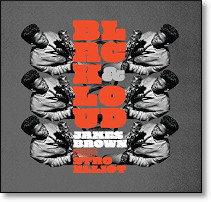 |
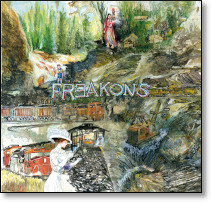 |
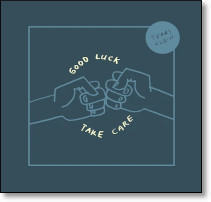 |
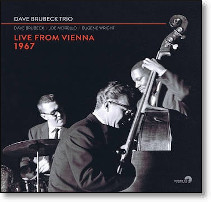 |
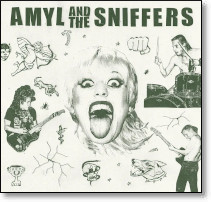 |
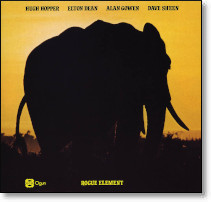 |
Expanded blog post, April archive (in progress).
Tweet: Music Week: 50 albums, 8 A-list, second opinions on this month's Consumer Guide, and first takes on another fairly deep pile of interesting albums.
Music: Current count 37739 [37689] rated (+50), 128 [130] unrated (-2).
I've been trying to write a piece on Ukraine. Yesterday I got so frustrated with it, I decided I'd post it that night regardless of what state it was in. It's not as if I expect anyone to read it or care. But I wrote another couple points last night, getting as far as this:
One must recognize that the only way this ends is through an agreement with Russia. Russia is too big to be bled to death by their losses in Ukraine, and there's no way Ukraine could effectively take the war onto Russian soil (after all, Napoleon and Hitler tried that and failed, even before Russia built a nuclear arsenal).
That seemed to require at least one more paragraph, on what such an agreement should (really, must) look like. So instead of rushing the post out last night, I decided to give myself another day, and post it tomorrow. But first Music Week.
Robert Christgau interrupted his 80th birthday holiday to post a Consumer Guide. Fourteen albums, seven I had already reviewed:
- Amyl and the Sniffers: Comfort to Me (ATO '21) [A-]
- Jon Batiste: We Are (Verve '21) [B+(**)]
- Cheekface: Emphatically No. (New Professor '21) [B+(***)]
- Ray Wylie Hubbard: Co-Starring Too (Big Machine) [A-]
- Pony: TV Baby (Take This to Heart) [B]
- Spoon: Lucifer on the Sofa (Matador) [B+(***)]
- Superchunk: Wild Loneliness (Merge) [A-]
The rest are caught up below (the Lenny Kaye comp assembled into a nearly complete songlist, the other two songs sampled from YouTube). I have no recollection at all of TV Baby. Christgau also published a 41-song playlist to mark 80 years. I can't describe how awful I felt when I got up this morning, but the piece came with a Spotify playlist (thanks to Joe Levy), and I figured that might pick me up a bit. First 11 songs were all classics from the 1950s, then after Ray Charles, he threw a curve and picked up bits by Charlie Parker and Thelonious Monk before trying to cover the 1960s in 8 tracks, and skipping through the 1970s way too fast (4 songs), followed by a break for 2 African pieces. After that there's nothing I would have come close to picking (although "That's the Joint" and "It Takes Two" sounded great, and it would be hard to improve on the James McMurtry and Robyn songs). The only WTF pick was the Brad Paisley. I'm lukewarm on the Selo i Ludy album below, but "It's My Life" ended this list, and sounded pretty good after 38-40.
New records reviewed this week:
- Teno Afrika: Where You Are (2022, Awesome Tapes From Africa): [r]: B+(***)
- Priscilla Block: Welcome to the Block Party (2022, InDent/Mercury Nashville): [r]: B+(*)
- Sergio Carolino: Below 0 (2021 [2022], Clean Feed): [bc]: B+(*)
- Hugo Carvalhais: Ascetica (2021 [2022], Clean Feed): [bc]: B+(**)
- Pastor Champion: I Just Want to Be a Good Man (2018 [2022], Luaka Bop): [r]: A-
- Chicago Farmer & the Fieldnotes: Fore!!!! (2022, Chicago Farmer, EP): [sp]: B+(*)
- Jeremiah Chiu & Marta Sofia Honer: Recordings From the Åland Islands (2022, International Anthem): [sp]: A-
- Confidence Man: Tilt (2022, Heavenly): [sp]: B+(***)
- Natalie Cressman & Ian Faquini: Auburn Whisper (2022, Cressman Music): [cd]: B+(***)
- Dedicated Men of Zion: The Devil Don't Like It (2022, Bible & Tire): [r]: B+(***)
- Stro Elliot: Black & Loud: James Brown Reimagined by Stro Elliot (2022, Republic): [sp]: A-
- Ensemble 0: Music Nuvolosa (2022, Sub Rosa): [bc]: B+(**)
- Ilhan Ersahin/Dave Harrington/Kenny Wollesen: Invite Your Eye (2022, Nublu): [r]: B+(*)
- Mané Fernandes: Enter the Squigg (2021 [2022], Clean Feed): [bc]: B+(**)
- Ricky Ford: The Wailing Sounds of Ricky Ford: Paul's Scene (2022, Whaling City Sound): [r]: B+(***)
- Freakons: Freakons (2022, Fluff & Gravy): [r]: A-
- Clay Harper: They'll Never Miss a Five (2022, Clay Harper Music): [r]: B+(*)
- Ibibio Sound Machine: Electricity (2022, Merge): [r]: B+(**)
- Kind Folk: Head Towards the Center (2021 [2022], Fresh Sound New Talent): [cd]: B+(**) [04-29]
- Terry Klein: Good Luck Take Care (2022, self-released): [r]: A-
- Lavender Country: Blackberry Rose and Other Songs & Sorrows From Lavender Country (2019 [2022], Don Giovanni): [r]: B+(**)
- Lights: PEP (2022, Fueled by Ramen): [r]: B+(***)
- The Linda Lindas: Growing Up (2022, Epitaph): [r]: B+(***)
- Mazam: Pilgrimage (2020 [2022], Clean Feed): [bc]: B+(**)
- Brad Mehldau: Jacob's Ladder (2022, Nonesuch): [r]: B
- Gurf Morlix: The Tightening of the Screws (2021, Rootball): [r]: B+(*)
- Keith Oxman: This One's for Joey (2021 [2022], Capri): [cd]: B+(***)
- Rich Pellegrin: Passage: Solo Improvisations II (2019 [2022], OAS): [cd]: B+(*)
- Marek Pospieszalski: Polish Composers of the 20th Century (2021 [2022], Clean Feed): [bc]: B+(*)
- Joel Ross: The Parable of the Poet (2022, Blue Note): [r]: B+(**)
- Sault: Air (2022, Forever Living Originals): [r]: B
- Selo I Ludy Performance Band: Bunch One (2019, self-released): [sp]: B+(**)
- André B. Silva: Mt. Meru (2021 [2022], Clean Feed): [bc]: B+(*)
- Jon Spencer & the HITmakers: Spencer Gets It Lit (2022, In the Red): [r]: B-
- Survival Unit III: The Art of Flight: For Alvin Fielder (2018 [2022], Astral Spirits): [bc]: B+(*)
- Vasco Trilla/Liba Villavecchia: Asebeia (2020 [2021], FMR): [bc]: B+(*)
- Jordan VanHemert: Nomad (2021 [2022], Origin): [cd]: B+(*)
- Liba Villavecchia Trio: Zaidan (2021 [2022], Clean Feed): [bc]: B+(***)
- Fabian Willmann Trio: Balance (2021 [2022], CYH): [cd]: B+(***)
Recent reissues, compilations, and vault discoveries:
- Dave Brubeck Trio: Live From Vienna 1967 (1967 [2022], Brubeck Editions): [cd]: A-
- Lenny Kaye Presents Lightning Striking (1934-2013 [2021], Ace, 2CD): [r]: B+(***)
Old music:
- Amyl and the Sniffers: Amyl and the Sniffers (2019, ATO): [sp]: A-
- Horace Andy: In the Light (1977, Hungry Town): [r]: B+(***)
- Mark Charig With Keith Tippett/Ann Winter: Pipedream (1977 [201], Ogun): [bc]: B-
- Stro Elliot: Stro Elliot (2016, Street Corner Music): [r]: B+(*)
- Terry Klein: Great Northern (2017, self-released): [r]: B+(***)
- Terry Klein: Tex (2019, self-released): [r]: B+(*)
- Lavender Country: Lavender Country (1973 [2014], Paradise of Bachelors): [r]: B+(**)
- Louis Moholo-Moholo Septet/Octet: Bra Louis - Bra Tebs/Spirits Rejoice! (1978-95 [2006], Ogun, 2CD): [bc]: B+(***)
- Soft Head [Hugh Hopper/Elton Dean/Alan Gowen/Dave Sheen]: Rogue Element (1978, Ogun): [bc]: A-
- Keith Tippett's Ark: Frames: Music for an Imaginary Film (1978, Ogun, 2CD): [bc]: B+(*)
Unpacking: Found in the mail last week:
- Milen Kirov: Spatium (Independent Creative Sound and Music) [06-05]
Monday, April 11, 2022
Music Week
 |
 |
 |
 |
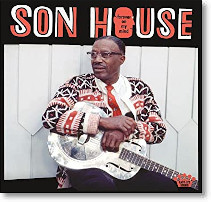 |
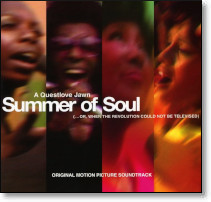 |
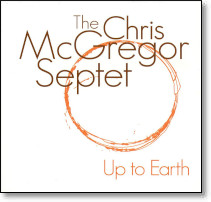 |
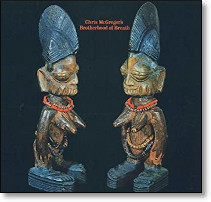 |
Expanded blog post, April archive (in progress).
Tweet: Music Week: 48 albums, 8 A-list, some things old, some things new, even some new-old blues.
Music: Current count 37689 [37641] rated (+48), 130 [137] unrated (-7).
Continued with the Ogun Bandcamp. Several readers singled out Chris McGregor's first two Brotherhood of Breath albums for praise, so I started there. Aside from new jazz from my queue (topped by Whit Dickey and Kalí Rodríguez-Peña), plus some of the links I had downloaded and neglected, almost everything else came from sifting through lists, collected in my metacritic file.
Exception: Old records by Bob Andy, Chic, and Soft Machine showed up in research on other records, and seemed like holes in the database ratings. The Soft Machine albums were ones I actually owned, but hadn't remembered well enough to include in my first cut of the ratings list. I probably never owned any Chic before Believer, but C'Est Chic was the only one still unrated.
Thought about writing a theses-type piece on Ukraine, but got lost trying to sort out the ancient history: the arrival of various Slavic groups, Byzantine influences, the Khazars and other Turkic groups, the Varangians (Vikings), the Mongols, the encroachments from the north (Poland, Lithuania, Russia) and the south (Ottomans), the Cossack revolts and mercenaries, more Russians (with its Pale of Settlement), the Germans in the World Wars. Russia clearly dates back through the Tsars to the Grand Duchy of Moscow (1263-1480), or perhaps to Kievan Rus (879-1240), given that both were ruled by the Rurik dynasty, but it's not clear how or when Ukrainians became distinct from Russians (or vice versa) -- only that they did by the late 18th century, when Catherine the Great extended Russian control over most of Ukraine, and started a campaign of Russification (going so far as to refer to Ukraine as Novorussiya -- a term recently credited to Putin), and the breaks from Russian rule in 1917-20 and after 1991 have only added to the separation. That Putin thinks Russia knows best can be credited to the myopia that shields the progeny of former empires from seeing the harm those empires caused. Even Russian leaders who knew better have tended to revert to the mindset of Tsars.
The big question at this point is why do none of the principals (and I think we have to include the US and UK on that list) seem concerned with getting a cease fire? More war means more destruction, but also deeper scars that will take longer to heal. Meanwhile, I think it's clear that many of the assumptions of post-WWII defense strategy have proven to be wrong -- something which NATO powers have missed, given their recent pledges to spend even more money on arms, and place them even more aggressively to threaten Russia. Few seem to recognize that the famous "madman theory" depends on the other side reacting sanely, an assumption Putin has shown to be no longer operative.
Some serious rethinking is called for.
New records reviewed this week:
- Mike Allemana: Vonology (2018-21 [2022], Ears & Eyes): [cd]: B+(*) [04-15]
- Horace Andy: Midnight Rocker (2022, On-U Sound): [r]: B+(*)
- Chief Keef: 4Nem (2021, Glo Gang/RBC): [r]: B
- Rob Clearfield & Quin Kirchner: Concentric Orbits (2019 [2022], Astral Spirits): [dl]: B+(***)
- Denzel Curry: Melt My Eyez, See Your Future (2022, PH/Loma Vista): [r]: B+(**)
- Kady Diarra: Burkina Hakili (2021, Lamastrock): [bc]: A-
- Whit Dickey Quartet: Astral Long Form/Staircase in Space (2021 [2022], Tao Forms): [cd]: A-
- Jean Fineberg: Jean Fineberg & JAZZphoria (2022, Pivotal): [cd]: B+(**)
- Asher Gamedze With Xristian Espinoza and Alan Bishop: Out Side Work: Two Duets (2019-20 [2022], Astral Spirits) **
- Josean Jacobo Trio: Herencia Criolla (2022, self-released): [cd]: B+(**)
- Mike Kuhl/Dave Ballou/John Dierker/Luke Stewart: Kraft (2021 [2022], Out of Your Head): [dl]: B+(***)
- Ben Markley Big Band With Ari Hoenig: Ari's Fun House (2021 [2022], OA2): [cd]: B [04-15]
- The Muslims: Fuck These Fucking Fascists (2021, Epitaph): [bc]: B+(***)
- Ivo Perelman/Tim Berne/Tony Malaby/James Carter: (D)IVO (2022, Mahakala Music): [sp]: B+(**)
- Raw Poetic & Damu the Fudgemunk: Laminated Skies (2022, Def Pressé): [r]: B+(**)
- Kalí Rodríguez-Peña: Mélange (2019 [2022], Truth Revolution): [cd]: B+(***)
- Shenseea: Alpha (2022, Rich Immigrants/Interscope): [r]: B+(***)
- Somi: Zenzile: The Reimagination of Miriam Makeba (2022, Salon Africana): [r]: B+(*)
- Luke Stewart's Silt Trio: The Bottom (2021 [2022], Cuneiform): [dl]: A-
- Luke Stewart: Works for Upright Bass and Amplifier Vol. 1 (2021, Astral Spirits): [bc]: B+(*)
- Luke Stewart: Works for Upright Bass and Amplifier Vol. 2 (2022, Astral Spirits): [bc]: B+(*)
- Wet Leg: Wet Leg (2022, Domino): [r]: B+(***)
- Jack White: Fear of the Dawn (2022, Third Man): [r]: B-
Recent reissues, compilations, and vault discoveries:
- Blue Notes: Blue Notes in Concert (1977 [2022], Ogun): [bc]: B+(***)
- Son House: Forever on My Mind (1964 [2022], Easy Eye Sound): [r]: A-
- Lèspri Ka: New Directions in Gwoka Music From Guadeloupe 1981-2010 (1981-2010 [2022], Séance Centre): [sp]: B+(**)
- Sal Mosca: For Lennie Tristano: Solo Piano 1970 & 1997 (1970-97 [2022], Fresh Sound): [r]: B+(**)
- Bernardo Sassetti Trio: Culturgest 2007 (2007 [2022], Clean Feed): [sp]: B+(***)
- Soft Machine: Facelift: France & Holland (1970 [2022], Cuneiform, 2CD): [dl]: B
- Summer of Soul ( . . . Or, When the Revolution Could Not Be Televised): A Questlove Jam [Original Motion Picture Soundtrack] (1969 [2022], Legacy): [sp]: A-
Old music:
- Horace Andy: Skylarking (1972, Studio One): [r]: B+(**)
- Chic: C'Est Chic (1978, Atlantic): [r]: B+(**)
- Alexander Hawkins & Louis Moholo-Moholo: Keep Your Heart Straight (2011 [2012], Ogun): [bc]: B+(**)
- The Chris McGregor Group: Very Urgent (1968 [2008], Fledg'ling): [sp]: B+(**)
- Chris McGregor Septet: Up to Earth (1969 [2008], Fledg'ling): [sp]: A-
- The Chris McGregor Trio: Our Prayer (1969 [2008], Fledg'ling): [sp]: B+(***)
- Chris McGregor: Chris McGregor's Brotherhood of Breath (1970, RCA): [sp]: A-
- Chris McGregor's Brotherhood of Breath: Brotherhood (1972, RCA): [sp]: B+(***)
- Chris McGregor: Sea Breezes: Solo Piano - Live in Durban 1987 (1987 [2012], Fledg'ling): [sp]: B+(**)
- Chris McGregor's Brotherhood of Breath/Archie Shepp: En Concert A Banlieues Bleues (1989, 52e Rue Est): [r]: B+(***)
- Chris McGregor's Brotherhood of Breath: The Memorial Concert (1994, ITM): [r]: B+(**)
- Louis Moholo-Moholo's Five Blokes: Uplift the People (2017 [2018], Ogun): [bc]: B+(*)
- The Soft Machine: Volume Two (1969, Probe): [r]: B
- Soft Machine: 5 (1972, Columbia): [r]: B+(*)
- Soft Machine: Six (1973, Columbia): [r]: B
- Soft Machine: Seven (1973, Columbia): [r]: B+(*)
- Keith Tippett Septet: "A Loose Kite in a Gentle Wind Floating With Only My Will for an Anchor" (1984 [2009], Ogun): [bc]: B+(***)
- Keith Tippett Octet: From Granite to Wind (2011, Ogun): [bc]: B+(*)
Limited Sampling: Records I played parts of, but not enough to grade: -- means no interest, - not bad but not a prospect, + some chance, ++ likely prospect.
- Chris McGregor's Brotherhood of Breath: Country Cooking (1988, Venture): [yt]: ++
Unpacking: Found in the mail last week:
- Miles Okazaki: Thisness (Pi) [04-29]
- David Virelles: Nuna (Pi) [05-27]
Saturday, April 09, 2022
Daily Log
Elias Vlanton wrote on Facebook:
More than any other war, I find it extremely difficult to figure out what is going on. Both sides are probably bombing and massacring indiscriminately--even the mainstream US admits that the administration intentionally pushes disinformation. And I assume the Russians do the same.
I replied:
Your point deserves a much longer response. Let me make three brief points here: 1) Both sides are running sophisticated propaganda operations, but Russia's is aimed at suppressing local dissent, while Ukraine's is aimed at getting US/NATO support, so it looks much more effective here. Also, Ukraine has much more to work with, being both the victim and valiant underdog -- traits which are probably exaggerated but not unearned -- and in Zelensky they have the most adept foreign leader at playing to the US crowd since Abba Eban, maybe even Winston Churchill. 2) Reporting in and of war is never good -- everyone you speak to has an agenda and critical investigation is dangerous and often impossible -- but it strikes me as much better than usual here (cf. Yemen or Eritrea for examples where no one knows what's going on). I've followed the daily updates and maps from the NYT, and feel like I'm getting a fairly accurate picture of what's happening (being pretty experienced by now at sifting through propaganda). 3) The big thing I fault the media for is not putting much more focus on why there hasn't been a cease fire, which would start to limit the damage while allowing time to negotiate the issues. This is a big topic, but there seem to be elements in the US that want to keep the punishment of Russia going indefinitely, regardless of what it costs Ukraine.
Friday, April 08, 2022
Daily Log
I was thinking about writing a N-theses-type post on Ukraine, and wanted to start with a succinct history. Turns out it's hard to be very succinct. The following is an attempt at a timeline:
Prehistoric: South and east Ukraine is part of the Pontic-Caspian steppe, a palearctic grassland which extends from the Caucasus Mountains north to forests and east to to the Kazakh steppe, northeast of the Caspian Sea.
Antiquity: Western part of Scythia ("a loose nomadic empire"), starting around 5th century BCE, a region that from 3rd century BCE was known as Sarmatia.
5th-6th centuries: Antes Union, of various Slavic peoples. Collapsed in 602.
650: Khazar Khaganate founded in Balanjar, in the North Caucasus. Balanjar was looted by Arabs (Umayyad Caliphate) c. 722, after which the Khazars moved their capital to Samandar. The Khazar Khaganate expanded between the Black and Caspian Seas, spreading east to the Aral Sea, west to mid-Ukraine, and north into Russia, moving their capital to Atil (near north end of Caspian Sea) in 965. Atil sacked in 969.
879: Kievan Rus founded in Novgorod as a loose federation of East Slavic, Norse, Baltic, and Finnic peoples, ruled by Varangian prince Rurik, establishing a long-running dynasty.
882: Seat of power in Kievan Rus moved to Kyiv.
882: Kyiv conquered from Khazars by Varangian noble Oleh, who started a long period of rule by Rurikid princes. Established state later known as Kievan Rus, or Ruthenia (Latinized name).
998: Formal government acceptance of Christianity, by Grand-Duke Vladimir the Great.
Late 9th-mid-13th century: Kievan Rus becomes largest state in Europe, extending north from central Ukraine to the Arctic Ocean (1220-40).
1199: Kingdom of Galicia-Volhynia founded in western Ukraine, southern Belarus, and eastern Poland, as a vassal state to the Golden Horde. Became Kingdom of Ruthenia in 1253, lasting until 1349.
1349: Ruthenia ceased to exist following the Galicia-Volhynia Wars, its lands partitioned between the Kingdom of Poland and the Grand Duchy of Lithuania.
1441: Crimean Khanate founded by Haci I Giray.
1569: Formation of Polish-Lithuanian Commonwealth, extended through most of north and west Ukraine (but not to Black Sea coast). Ruthenians who escape efforts to force them into serfdom came to be known as Cossacks.
1648: Ukrainian Cossack rebellion.
1654-67: Russo-Polish War. Ended with Truce of Andrusovo, which ceded control of east Ukraine to Russia. Russia temporarily occupied Kyiv, which became permanent in 1686.
1686: Treaty of Perpetual Peace signed, giving Ukraine east of the Dnieper River from Poland to Russia.
1772: First Partition of Poland, transferred a slice of northeast Polish-Lithuanian Commonwealth (12.68%) to Russia. Map shows Kiev (Kijow) and Riga (Ryga) already in Russia (barely). Other lands were ceded to Prussia () and Austria ().
1793: Second Partition of Poland, transferred almost the entire eastern half of Polish-Lithuanian Commonwealth to Russia (34.11%). Other lands were ceded to Prussia ().
1795: Third Partition of Poland, transferred more land to Russia (16.36%). Other lands were transferred to Prussia () and Austria (), leaving Poland-Lithuania defunct. At this point most of Ukraine was controlled by Russia, with parts of the west (e.g., Lviv) under Austrian control, and the south divided between Moldavia, Ottoman Empire, and Crimean Khanate.
1917-03-04: Central Council of Ukraine founded following Russia's February Revolution, declared autonomy within the Russian Republic. Was overthrown 1918-04-29 by a right-wing coup.
1917-11-08: Bolshevik uprising in Kyiv, parallel to the October Revolution in Russia.
1918-01-22: Fourth Universal issued, breaking ties with Bolshevik Russia and declaring an independent Ukraine state.
1918-02-09: Ukraine signed Treaty of Brest-Litovsk, seekig German military help against Russia. Red Army seized Kyiv, and Civil War spread to Ukraine. The Soviet-Ukrainian war lasted until 1921-11-17, resulting in the Ukrainian Soviet Socialist Republic.
1922: Ukrainian SSR joined the Soviet Union.
1991: Soviet Union dissolved. Ukraine SSR became independent. This followed a meeting where the presidents of Russia (Boris Yeltsin), Belarus (), and Ukraine (Leonid Kuchma) agreed to dissolve the Soviet Union.
1994: Under Treaty of the Non-Proliferation of Nuclear Weapons, Ukraine agreed to return nuclear weapons to Russia. In return, Russia, UK, and US agreed to "uphold the territorial integrity and political independence of Ukraine through the Budapest Memorandum on Security Assurances."
1997: Russia and Ukraine signed a treaty governing division of the Soiet Black Sea Fleet, which allowed Russia to maintain its military units in Crimea until 2017.
2013-11-21: President Viktor Yanukovych suspended preparations for an association agreement with EU. This was followed by mass protests against Yanukovych and in favor of EU.
2014-02-22: President Yanukovych impeached by Ukrainian parliament.
2014-02-23: Russian forces entered Crimea. Russia already had 12,000 military personnel based in Crimea with their Black Sea Fleet.
2014-03-18: A referendum was held in Crimea, which validated Russia's annexation of Crimea.
Tuesday, April 05, 2022
Daily Log
I offered a quote from Louis Menand in my Music Week column, which turned out to be more ambiguous than I had thought: "Might Arendt be mistaking the ideoogy of totalitarianism for the lived reality? Might she be imagining that totalitarian systems are more coherent and all-powerful than they really are? . . . Riesman's suggestion that underneath the ideological swagger, the Soviet Union was a klutzy bureaucracy run by thugs was just the kind of inability to take totalitarianism seriously that she had written her book against." I tried explaining:
Sorry that completing that quote led my intent astray. My first encounter with "totalitarianism" was when we bought the 1960 World Book Encyclopedia, and I noticed that the entry on government, which in earlier editions was laid out in three columns (democracy, fascism, communism) had been reduced to two (democracy, totalitarianism), an obvious attempt to muddy the distinctions and reduce the two to common evil, while cleansing democracy of its internal conflicts (mostly between left and right). Before long, I started to suspect that totalitarian was never total, nor was democracy all that free and open -- that real systems varied significantly from the idealized ones of political rhetoric. (Also note that while Fascists and Nazis defined themselves as such, no one ever advocated or aspired to totalitarianism.) So, yeah, I find Riesman's empirical skepticism preferable to Arendt's system building. In the present context, I think it's fundamentally wrong to characterize Putin, Xi, Maduro, etc, as absolute dictators when their power is rooted in more complex institutional sources. One could even argue that bureaucratic klutziness and thuggery are simple variables common to both democratic and totalitarian political systems, with minor variations, of course. I'm also trouble that, much like Arendt fed Cold War hostility, the current crop of anti-totalitarian ideologists (e.g., Albright, Applebaum, Snyder) have fueled its resurrection (which at the moment I'm reluctant to call Cold War II). Of course, Putin's rash and foolish decision to invade Ukraine may be attributed to his closed system of "yes man" advisers, but our system of democratic checks and balances did little to inhibit LBJ from making the same mistake in Vietnam, or GW Bush in Iraq.
Monday, April 04, 2022
Music Week
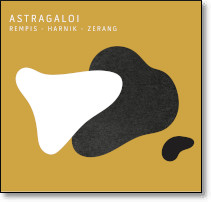 |
 |
 |
 |
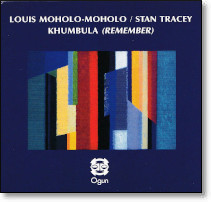 |
Expanded blog post, April archive (in progress).
Tweet: Music Week: 44 albums, 5 A-list (4 of those old), notes on taxes, wor[l]dle games, the news I didn't report, the book I'm reading. Big week for unpacking. Nice to have your opinions solicited.
Music: Current count 37641 [37597] rated (+44), 137 [128] unrated (+9).
Another week. Surprised that the rated count held up, given that I took a day off to cook, and that it feels like I often got stuck looking for new things to play. Also spent a lot of time (4 plays) with Bouvier before I decided it didn't quite click -- easily the most tempting of an admirable bunch of B+(***) albums below. But I guess I got a solid start with the Ogun Bandcamp, which I still haven't exhausted.
Woke up this morning realizing it was already April and we hadn't done anything about income taxes. Tried calling the person who has done them for 20+ years, only to find out that she died last May, so we need to find someone else. Taxes are always a great psychic strain for me, although the relief once it's done is considerable.
I haven't had the slightest inclination to do Wordle, although my wife has a winning streak since her second game (and only loss), and has sought out variants, including the daily Quordle, which appears at midnight, interrupting our television time, so I occasionally consult. Sometimes I think of words, but mostly draw on letter frequencies, which somehow I know a bit about.
The game I have gotten into the habit of is Worldle, which also appears daily, giving you a Rorschach blob claiming to be the borders of a country or territory, which you get six guesses at. Each false guess gives you a distance and direction to the answer. Geography was my subject as a child: by age 10 or so I could rattle off not just all the states and their capitals, but the provinces of Canada and Australia, the SSRs in the Soviet Union, and virtually every nation-state on a continent. I've retained most of that, and have found most of these puzzles instantly recognizable. Today's Latvia took two guesses but less than 5 seconds (my first was Turkmenistan, off by 3224km NW, and while I don't think in metric, that seemed about right for the Baltic area, and the shape excluded every other nation in the area). Monaco took three, and much more time. Only problem has been with islands. Anguila eluded me, although it would have been easy with a map of the Lesser Antilles (I did narrow it down between Antigua and the Virgin Islands). I recognized Kerguelen (after an initial guess of Svalbard), but the name wasn't accepted, so I had to look up French Southern and Antarctic Lands. I can't say as I've ever heard of Heard and McDonald Islands (though consulting maps using directions and distances got me there in three). Christmas Island also took an open book approach, though I sort of recognized it once I got there. I view the game as sort of a two-tiered test: first of what you recognize and recall; second, if I didn't get the answer within a minute, of what you can figure out. My 8th Grade US History teacher was a big believer in open book tests, and I learned more there than I did in practically all the rest of grades 7-9 combined.
No Speaking of Which last week, as I put most of my effort into yesterday's big Book Roundup. I have zero interest or concern in the Will Smith slap that dominated our fickle media's limited attention span. Meanwhile, Republicans have been so puerile it's getting hard to dignify them with scorn. (Madison Cawthorn seemed to top them all last week, but not without stiff competition from Cruz, DeSantis, and Graham.) And Ukraine slogs on, rerunning tragedy inside the country and farce everywhere else. I'm sure I'll have more to say about that at some point. I suppose I could at least link to Jeffrey St. Clair's Roaming Charges, but it's a pretty mixed bag, more reliably on point about WWI than Ukraine. I particularly like a line in a longer Bertrand Russell quote: "The English and French say they are fighting in defense of democracy, but don't want their words to be heard in Petrograd or Calcutta."
What I wanted to mention in the Book Roundup but ran out of time for was how stimulating I've been finding Louis Menand's The Free World. The book, at least as far as I've read, consists of a series of portraits of seminal figures, starting with George Kennan, whose prescription for containment of the Soviet Union was always more nuanced than the policies of his followers. An important nuance was his insight that Stalin's efforts to secure the perimeter around Russia had nothing to do with communist ideology and everything to do with Tsarist Russia's fear and pride. We see this same attitude today with Putin asserting Russia's right to save Ukraine from itself -- as we also see Americans ignoring this crude conceit in favor of ideological and/or psychological explanations.
The book follows with pieces on George Orwell, James Burnham (and C. Wright Mills), Jean-Paul Sartre (and Simone de Beauvoir), Hannah Arendt, and David Riesman. I thought that Riesman's critique of Arendt was particularly timely: "Might Arendt be mistaking the ideology of totalitarianism for the lived reality? Might she be imagining that totalitarian systems are more coherent and all-powerful than they really are? . . . Riesman's suggestion that underneath the ideological swagger, the Soviet Union was a klutzy bureaucracy run by thugs was just the kind of inability to take totalitarianism seriously that she had written her book to warn against." Riesman also has a critique of democracy, where polling is mudied by people insisting on having opinions even when they know nothing, but ignorance itself is some kind of virtue. Still makes for messy politics -- which corresponds rather well to history.
Next up was Clement Greenberg and Jackson Pollock, so finally we get into art. I barely recognized Greenberg's name, but found I could unpack a lot of my own experience from his "Avant-Garde and Kitsch" essay. This was, after all, the world I was born into, even if it took a while for their ideas to sink down to the lower-class Wichita I was desperate to escape. But isn't the avant-garde a vector you can trace back to bourgeois revolution (even as the bourgeoisie themselves elected for kitsch)? And isn't part of the motivation the feeling of superiority you get from mastering the rare and esoteric in a world that is otherwise leveling? I got into avant-garde art and left-wing politics more/less simultaneously, and reconciled the two by insisting that nothing prevents leftists (or anyone) from also enjoying the avant-garde, but experience suggests it's not often that easy.
Quite a bit of unpacking this week. Most pleasant surprise was a package of 577 Records that don't appear to be out yet (although they look like product. On the other hand, it seems like it's gotten much harder to stream their records, so my coverage has gotten spottier.
New records reviewed this week:
- Nia Archives: Forbidden Feelingz (2022, Hijinxx, EP): [sp]: B+(**)
- Lynne Arriale Trio: The Lights Are Always On (2021 [2022], Challenge): [cd]: B+(**) [04-08]
- Aaron Bazzell: Aesthetic (2022, self-released): [cd]: B+(**) [04-22]
- David Binney: A Glimpse of the Eternal (2021 [2022], Criss Cross): [r]: B+(*)
- Bouvier: Blachant (2022, Renewell): [cd]: B+(***) [04-13]
- Club D'Elf: You Never Know (2022, Face Pelt): [r]: B+(**)
- Avishai Cohen: Naked Truth (2021 [2022], ECM): [r]: B+(**)
- Armen Donelian: Fresh Start (2022, Sunnyside): [cd]: B+(**)
- Jacob Garchik: Assembly (2021 [2022], Yestereve): [cd]: B+(***) [05-13]
- Giacomo Gates: You (2022, Savant): [r]: B+(***)
- Aldous Harding: Warm Chris (2022, 4AD): [r]: B+(**)
- Walker Hayes: Country Stuff: The Album (2022, Monument): [r]: B
- Benji Kaplan: Something Here Inside (2021 [2022], Wise Cat): [cd]: B+(*) [05-06]
- Kyle: It's Not So Bad (2022, self): [r]: B+(*)
- Loop: Sonancy (2022, Cooking Vinyl): [r]: B+(***)
- Yuko Mabuchi: Caribbean Canvas (2022, Vista): [cd]: B+(**)
- Paul Messina: Blue Fire (2021, GVAP Music): [cd]: B-
- Maren Morris: Humble Quest (2022, Columbia Nashville): [r]: B+(***)
- Josh Nelson/Bob Bowman Collective: Tomorrow Is Not Promised (2021 [2022], Steel Bird Music): [cd]: B+(**)
- The Nu Band: In Memory of Mark Whitecage: The Nu Band Live at the Bop Shop (2018 [2022], Not Two): [r]: B+(***)
- Danilo Perez: Crisálida (2022, Mack Avenue): [r]: B
- Dave Rempis/Elisabeth Harnik/Michael Zerang: Astragaloi (2020 [2022], Aerophonic): [cd]: A-
- Huerco S.: Plonk (2022, Incienso): [r]: B+(*)
- Mark Turner: Return From the Stars (2019 [2022], ECM): [r]: B+(***)
- Years & Years: Night Call (2022, Polydor): [r]: B+(**)
Recent reissues, compilations, and vault discoveries:
- John Coltrane Quartet: Song of Praise: New York 1965 Revisited (1965 [2022], Ezz-Thetics): [bc]: B+(***)
- Sun Ra Arkestra: Nothing Is . . . Completed & Revisited (1966 [2022], Ezz-Thetics): [bc]: B+(***)
Old music:
- Elton Dean Quintet: Welcomet: Live in Brazil, 1986 (19868 [2017], Ogun): [bc]: B+(***)
- The Dedication Orchestra: Spirits Rejoice (1992, Ogun): [bc]: B+(***)
- The Dedication Orchestra: Ixesha (Time) (1994, Ogun, 2CD): [bc]: B+(***)
- Radu Malfatti/Harry Miller: Bracknell Breakdown (1977 [1978], Ogun): [bc]: B+(*)
- Chris McGregor's Brotherhood of Breath: Live at Willisau (1973 [1994], Ogun): [bc]: A-
- Chris McGregor: In His Good Time (1977 [2012], Ogun): [bc]: B+(**)
- Chris McGregor's Brotherhood of Breath: Procession: Live at Toulouse (1978 [2013], Ogun: [bc]: A-
- Harry Miller: Children at Play (1974, Ogun): [bc]: B+(*)
- Harry Miller: Different Times, Different Places (1973-76 [2013], Ogun): [bc]: A-
- Harry Miller's Isipingo: Family Affair (1977, Ogun): [bc]: B+(***)
- Harry Miller: In Conference (1978, Ogun): [bc]: B+(**)
- Harry Miller: Different Times, Different Places: Volume Two (1977-82 [2016], Ogun): [bc]: B+(***)
- Louis Moholo/Evan Parker/Pule Pheto/Gibo Pheto/Barry Guy Quintet: Bush Fire (1995 [1997], Ogun): [bc]: B+(**)
- Louis Moholo-Moholo Meets Mervyn Africa/Pule Pheto/Keith Tippett: Mpumi (1995 [2002], Ogun): [bc]: B+(*)
- Louis Moholo-Moholo/Stan Tracey: Khumbula (Remember) (2004 [2005], Ogun): [bc]: A-
- Louis Moholo-Moholo Unit: An Open Letter to My Wife Mpumi (2008 [2009], Ogun): [bc]: B+(*)
- Louis Moholo-Moholo Unit: For the Blue Notes (2012 [2014], Ogun): [bc]: B+(*)
Unpacking: Found in the mail last week:
- Pepper Adams With the Tommy Banks Trio: Live at Room at the Top (1972, Reel to Real) [04-23]
- Mike Allemana: Vonology (Ears & Eyes) [04-15]
- Dave Brubeck Trio: Live From Vienna 1967 (Brubeck Editions) [04-15]
- Dan Bruce's Beta Collective: Time to Mind the Mystics (Shifting Paradigm) [04-29]
- Daniel Carter/Evan Strauss/5-Track/Sheridan Riley: The Uproar in Bursts of Sound and Silence (577) [??-??]
- Natalie Cressman & Ian Faquini: Auburn Whisper (Cressman Music) [04-15]
- Sture Ericson/Pat Thomas/Raymond Strid: Bagman Live at Cafe Oto (577) [??-??]
- Heroes Are Gang Leaders: LeAutoRoiOgraphy (577) [06-17]
- Amanda Irarrázabal/Miriam van Boer Salmón: Fauces (577) [??-??]
- Josean Jacobo Trio: Herencia Criolla (self) [03-04]
- Ben Markley Big Band With Ari Hoenig: Ari's Fun House (OA2) [04-15]
- Jessica Pavone/Lukas Koenig/Matt Mottel: Spam Likely (577) [??-??]
- Rich Pellegrin: Passage: Solo Improvisations II [04-15]
- Kali Rodriguez-Peña: Mélange (Truth Revolution) [03-04]
- Ches Smith: Interpret It Well (Pyroclastic) [05-06]
- Somi: Zenzile: The Reimagination of Miriam Makeba (Salon Africana) [03-04]
- SSWAN [Jessica Ackerley/Patrick Shiroishi/Chris Williams/Luke Stewart/Jason Nazary]: Invisibility Is an Unnatural Disorder (577) [??-??]
- The United States Air Force Band Airmen of Note: The 2022 Jazz Heritage Series (self-released)
- Jordan Vanhemert: Nomad (Origin) [04-15]
Sunday, April 03, 2022
Book Roundup
Tweet: Book Roundup:
Friday, April 01, 2022
Daily Log
Elias Vlanton posted a meme on Facebook with a picture of Zelensky and the caption: "So proud I destroyed half my country just to agree to the terms Russia demanded before they invaded." Jackelin Rodriguez immediately responded: "He didn't destroy it, Russia did. But he could have avoided it." Elias agreed, adding: "He, like the United States, are guilty of contributory negligence. To bleed Russia, the United States is heroically willing to sacrifice to the last Ukrainian life." After various other comments, most defending Zelensky, I managed to post my slightly more nuanced comment:
I'm not aware of any such agreement, nor am I all that clear as to what Russia had demanded (and only presumably would have agreed to) before the invasion. Reasonable observers like Fred Kaplan and Anatol Lieven (both cited in my blog posts) have laid out possible agreements that would be mutually advantageous (at least compared to what's actually gone on), but thus far neither side has agreed to the necessary compromises. And while Ukraine and Russia are negotiating in Turkey, I suspect that Putin's bigger concern is with the US, which is the real source of NATO expansion, sanctions, and economic and political ostracism of Russia -- things that will not automatically change if Russia and Ukraine agree on some mix of division and/or autonomy and/or neutrality. And unless there is some hope for change there, it's not clear why Putin should stop doing the one thing he can still get away with, which is to pound Ukraine. It's not clear to me how much blame Zelensky deserves for provoking Putin, especially given that Russia's demands are often unreasonable (many go back to the tsarist-era conceit that what's good for Russia is good for their neighbors and subjects -- an imperialist view that Americans are not exempt from, having extended their "indispensable nation" shtick to the far corners of the globe), and his invasion is inexcusable (a judgment I've also made about a number of US invasions). Still, having been attacked, I'm not going to reproach him for fighting back. It would, however, be a tragic mistake if that's all he does.
Dru Thomas commented:
Well, Elias, you and I appear to completely disagree about the role Zelensky has played during this vicious, empire-greedy invasion by Putin. It is rather unfathomable when I think of the dear Elias I knew fifty years ago.
I've known Elias for 50 years now, so I figured I must have known Dru as well. Her last name was Lipsitz then, married to George, who when I first met him had graduated from Wash U but hadn't decided yet to go on to graduate school. After a year or so, he enrolled in UMSL, where George Rawick was teaching. He eventually got his Ph.D, rose through academia, and published a dozen or more books. George and Dru broke up in 1979, after I had left St. Louis.
I missed Elias' first reply, placed here back in order:
I opposed the constant war-hysteria and fear-mongering of the Democrats and Republicans 50 years and still do. The thought that I should join Ted Cruz, Hillary Clinton, Victoria Nuland, and all the other American interventionists in supporting more war and destruction is beyond me.
I realize that liberals have signed on to National Putin Hate Month (Orwell would be so proud), and Zelensky as god's messenger, but I think that formulation is simplistic. We forgot about Zelensky's tax evasion and off shore bank accounts (exposed by the Panama Papers), his financing by Ukrainian oligarchs (with requisite political favors), or his suppression of opposition media and political parties.
You can oppose the Russian invasion and still recognize that the US and NATO forced Russia into a corner and left them few options. The US pushed NATO expansion even before Putin--and the Russian leaders opposed it then. But no matter, it served our aims of domination, and the victims be dammed.
Dru Thomas responded:
Elias Vlanton, you and I have major disagreements about this. You have indirectly painted me with the liberal paintbrush, and I know that is anathema to you. For my part, I think that belies who I am. But never mind; you've put me in that tidy box and its a waste of time to argue. You spoke of simplistic formulation. I do think the perspective you've shared about this situation runs that risk. For me, there's a rigidity, a stasis, a foregone conclusion shaping that view. Perhaps it's my response to aging, but I seek and find much more complexity, dynamism, and, if you will, dialectical pathways and presence in this and other political, economic, and cultural events and evolution.
Elias again:
Dru, ever since kindergarten all I've heard is how the Soviets/Russian seek global domination. while the US has overthrown more governments, invaded more countries, bombed more civilians, and carried out more war crimes than Russia. How do you explain that?
Claims about Putin's ultimate war aims are speculation. Are they reported by someone who sat in the Kremlin national security conferences? Or had access to secret Russian war plans? No. They are just the pablum fed to CNN and Fox listeners by Fareed Zakaria, John Bolton and usual suspects of retired generals and spy chiefs who faithfully support US war aims. The two countries Russia has invaded since 2008 -- Ukraine and Georgia -- are both countries that sought to join NATO, a cold war relic that the US uses to militarily encircle Russia. When the US accepts missiles in Cuba or Mexico, you can talk to me about how fair it is for Ukraine to join NATO. Otherwise, it is just war rhetoric.
Finally, since you evoked Ho Chi Minh, you might want to remember that he negotiated both the Geneva Accords in 1954 and with the Nixon Administration in the 1970s. If Zelensky had not been fooled by his Western "allies" and agreed to Ukrainian neutrality, a lot of suffering would have been avoided.
There is a difference between supporting the Russian invasion--which I do not--and understanding how the Russian political class can feel threatened by US hysteria against Russia--which I do understand. Of course we need a critical stance here--but that stance must eschew both the invasion itself and the US efforts to promote a new cold war. But I don't see hardly anyone--and certainly not in the mainstream media--calling the US to account for its previous misdeed of NATO expansion and its dangerous and inflammatory rhetoric now. That's why I posted this meme, to force that discussion.
Elias fielded a question from one of his former high school students:
The primary Russian foreign policy objective for the last 25 years has been to prevent NATO and the US placing troops along the Russian border. Imagine if Mexico had agreed to join a military pact with Russia, do you think we would allow them to put Russian missiles in Mexico? Zelensky refused to agree before the Russians invaded to make Ukraine non-aligned. Now, after the avoidable happened, he has agreed to it. The US encouraged the Ukrainians to believe they would be protected with the West, which was never really the US intention. The US all along wanted to weaken Russia at the cost of the last Ukrainian. Zelensky should have known better.
Dru responded to this:
Elias Vlanton, methinks your view of Russian aims is too myopic and one-dimensional. Granted, Russia does not want an expansion of NATO on its doorstep, but to believe Putin has no aims at reconstituting empire seems shortsighted at best. And to lay blame for this invasion, which is riddled with war crimes, on Zelensky strikes me as profoundly anti-democratic, particularly given the response of the Ukrainian people and their will to fight Russia. Somehow I don't remember this criticism aimed at the Viet Cong and the North Vietnamese who suffered terrible losses and yet had a much stronger, and understandable will to fight and free their nation of outside interference from the French and the Americans. Yes, you and I agree on many of criticisms of the US, both during the Vietnam war and most likely during the period of post-World War capitalist triumphalism ushered in by collapse of the Soviet Union and the domestic and foreign policies Reagan embraced -- and subsequent administrations have little questioned. Nonetheless, to view Putin, his ambitions, his contempt for and punishment of any opposition voices, and his clear viciousness and brutality mostly through a lens that lays criticism and blame on the US seems singularly wrong-headed and shaped by agenda rather than the reality of the situation.
I finally added this:
Couple quick points (obviously one could say much more about each): I think people underrate the economic impact of Ukraine joining the EU, and that strikes me as the real threat Russia feels. Before 1993, Ukraine was totally integrated into the Soviet economy, on terms that benefited Russia. The coup that split the SU was predicated on keeping Belarus and Ukraine wedded to Russia, and that's falling apart. It's just a lot easier to talk about NATO, not least because that's where the US pulls strings. But there's an economic angle there, too: Russia is a major arms exporter, but NATO gives the US a captive arms market, one that the US government actively supports (the definition of an ally is a country that buys US arms, with less and less concern over what they do with them). NATO was never built to fight or even threaten Russia, but their existence depends on having an enemy, a bill which Russia handily fills (for lots of reasons, some of which they cause themselves, like cyber mischief). NATO is by definition an anti-Russia hate machine, and in enforcing US sanctions has become even more of an economic threat. Still, this is not all American provocation. Russians, at least since Peter the Great, have a self-view that makes them think they're entitled to lead and dominate their neighbors, and that view has been remarkably persistent despite changing ideological winds. Such chauvinism is not unique to Russia -- it's most easily recognized in the collapsed ruins of past empires (e.g., Britain and France, but also Turkey and Iran, and America has its own version). Like all imperial conceits, it generates resistance. That's been evident in Ukraine for a while, but Putin's invasion has radically accelerated it, and that's increasingly what the war is about. The situation is messy with all the outside interests, but at root it is a fight for independence, and at least in that regard it is one we should all hope that Russia loses bad enough to never threaten this again. But while one hopes Russia will emerge chastised, Americans should take no joy in that, and realize that our folly was contributory to theirs, and that we need other approaches going forward. I'm not very optimistic about that. I'm reminded of John Le Carre's judgment on the end of the Cold War: "the right side lost, but the wrong side won." That's about all you can hope for in war.
Elias replied:
I have heard reports that the Russians agreed that Ukraine could join the EU, but not NATO. While I agree with your analysis the the Russians expected to maintain economic dominance over Ukraine, perhaps they thought that they could live with it in the EU--perhaps there might even be benefits.
I think there could have--and perhaps still is--a way for Ukraine to be independent of yet still not a threat to Russia. Of course Western, primarily US, sabre-rattling will make that much more difficult.
I replied:
I haven't heard those reports. Russia chose to play up the NATO angle, and still has a chance to negotiate a "win" there (although as I understand the proposals, I think Ukraine will be better off with bilateral security guarantees than they would have been in NATO, where the US is still very much in charge). The other big negotiation issue is how much of Donbas/Crimea to give Russia. The simplest and cleanest solution would be to give it all up, at which point there's nothing Russia can say or do about EU. There's really no percentage in trying to hang on to a minority territory in open revolt anyway. (It's been done on occasion, as Russia did in Chechnya, but not without great costs.) It's interesting that Zelensky recently complained that if France and Germany hadn't blocked EU membership for Ukraine, the war would never have happened. By the way, thanks to you and Dru for many other valuable points in this thread.
 |
Mar 2022 |